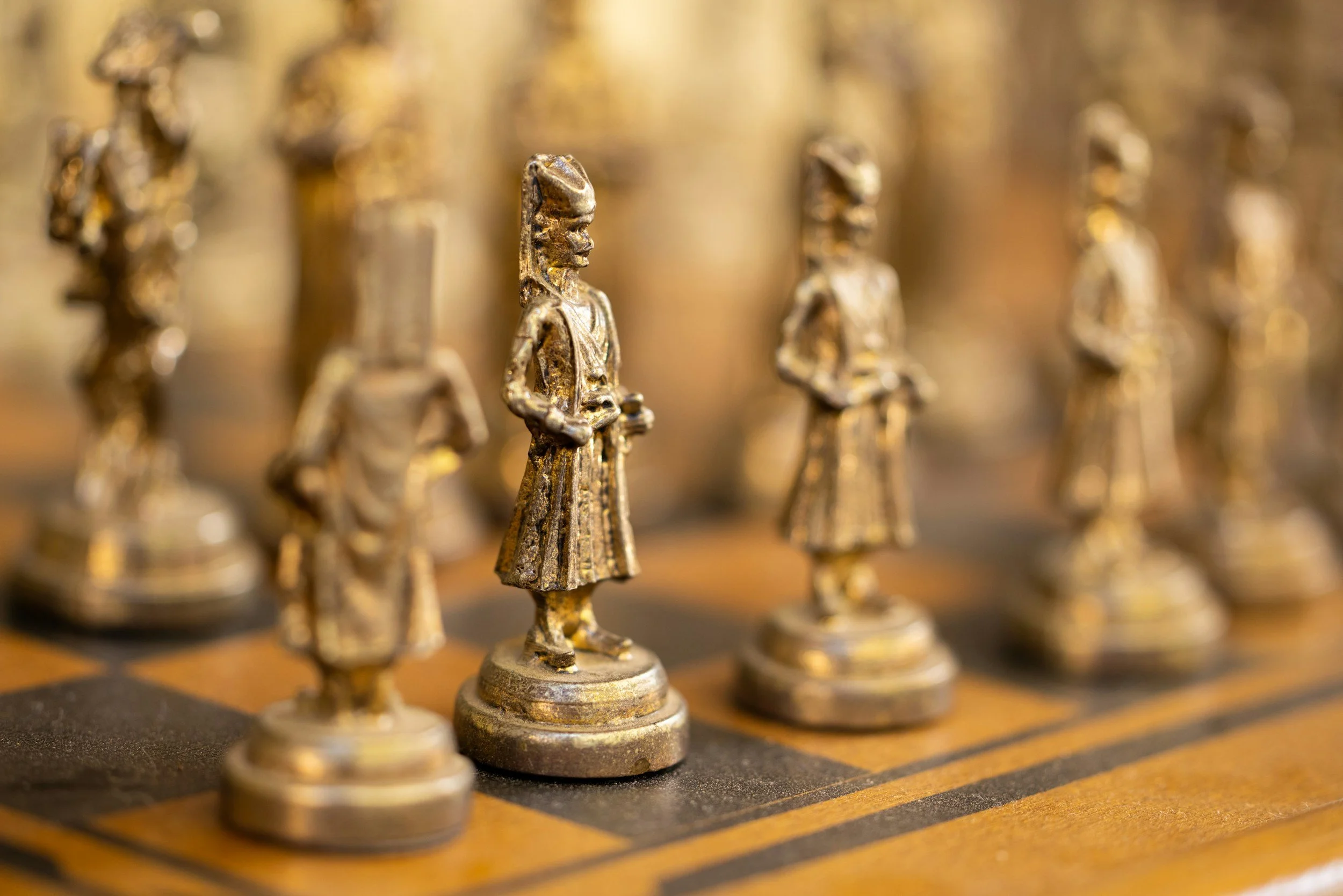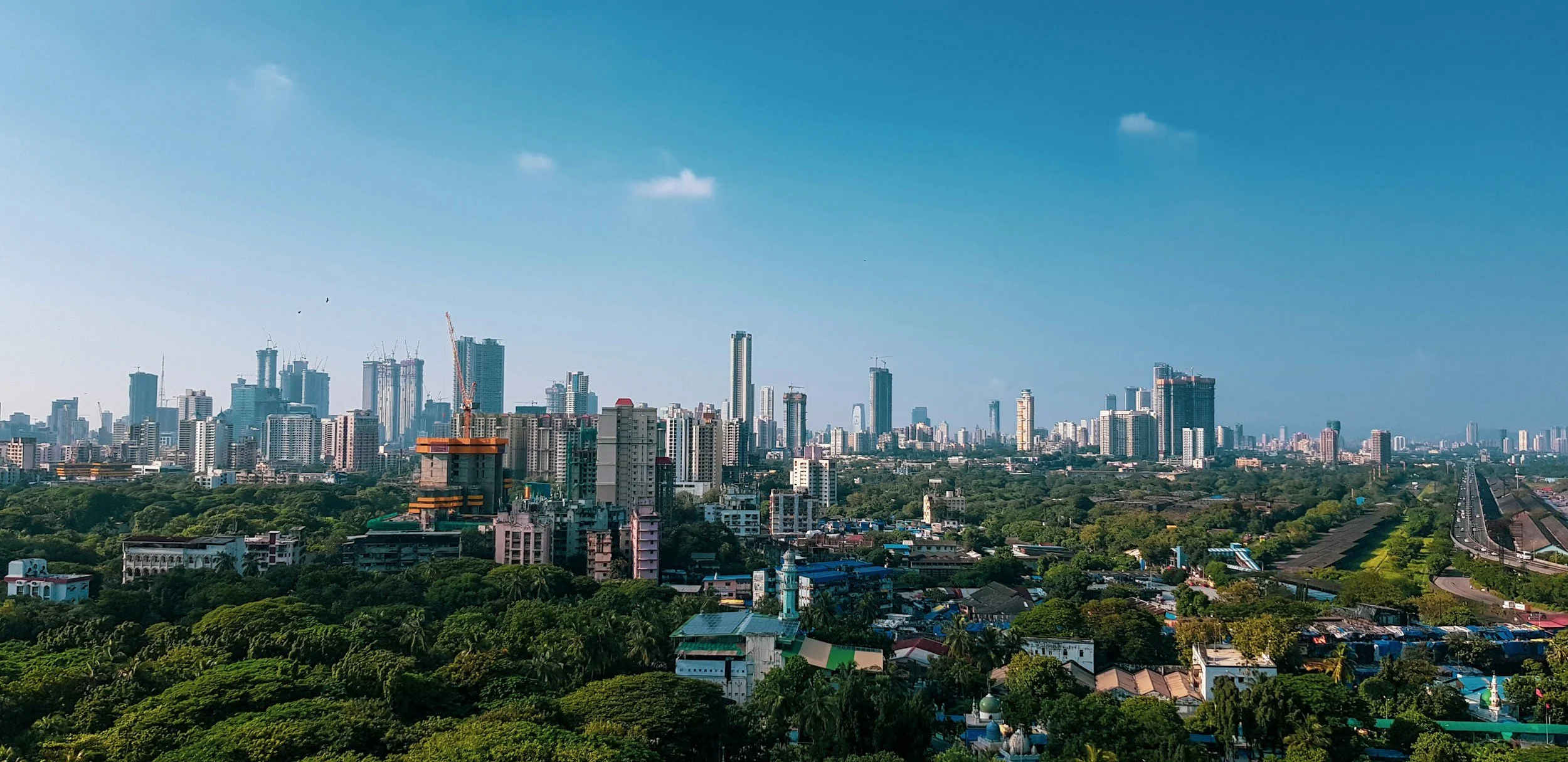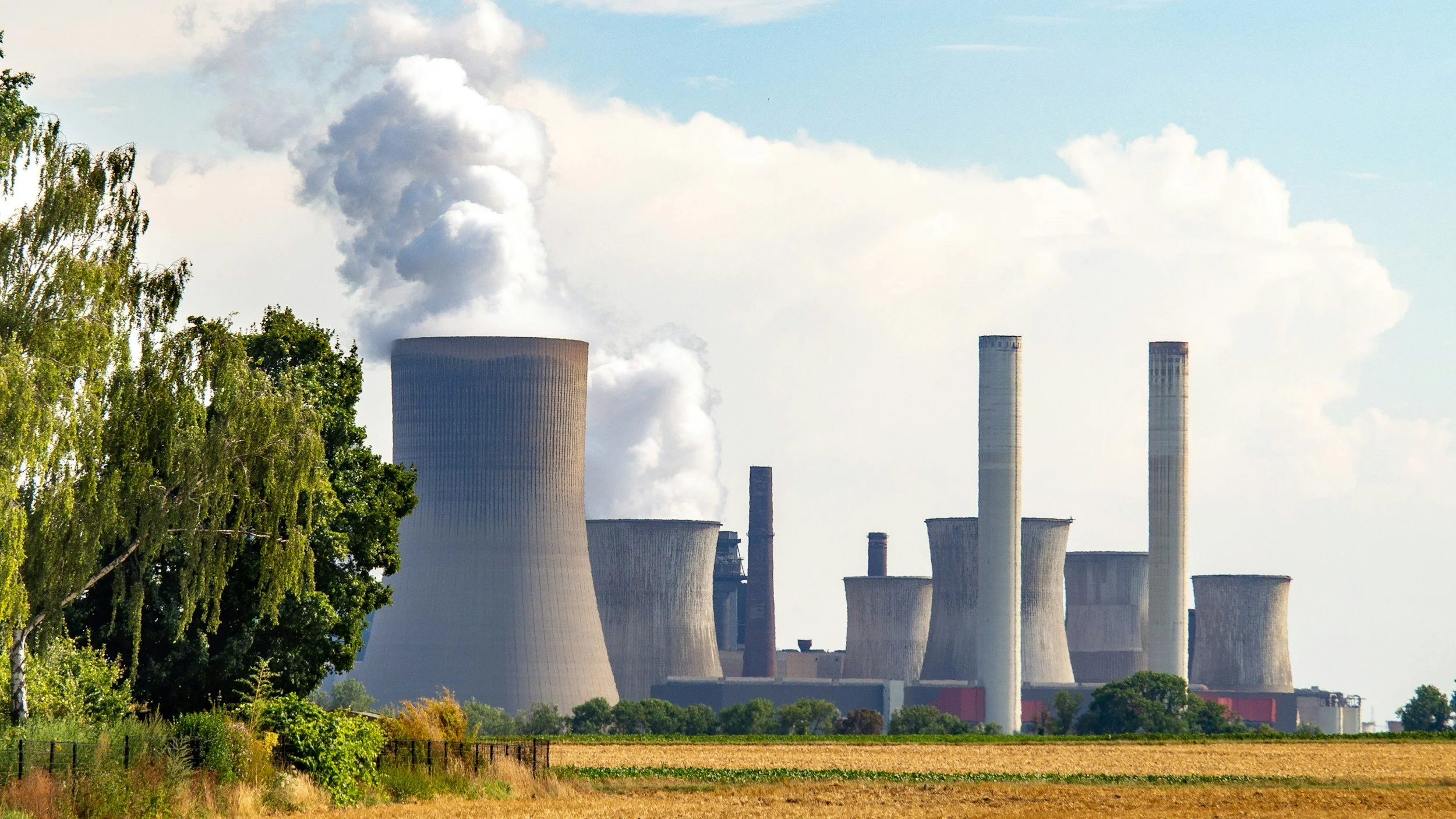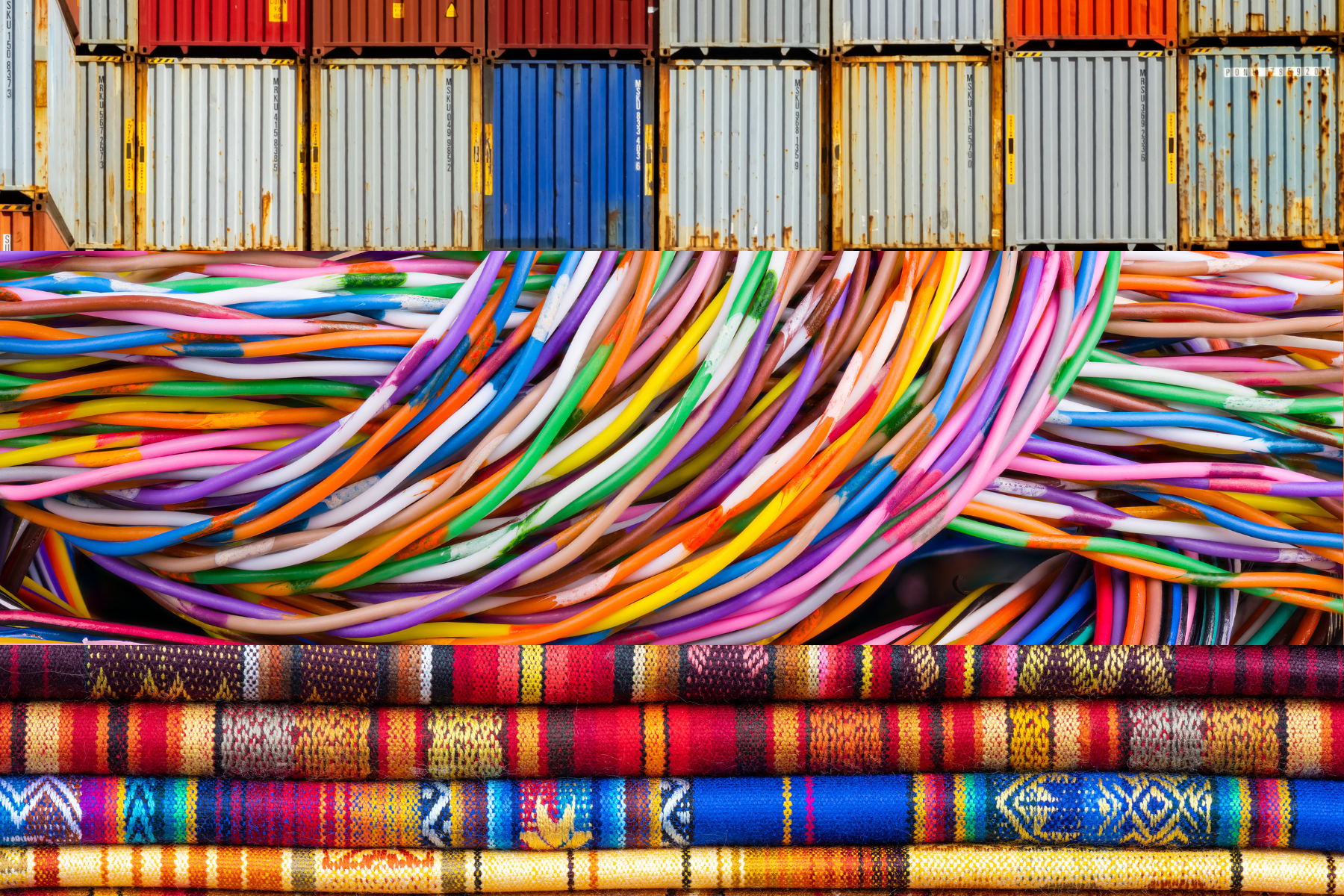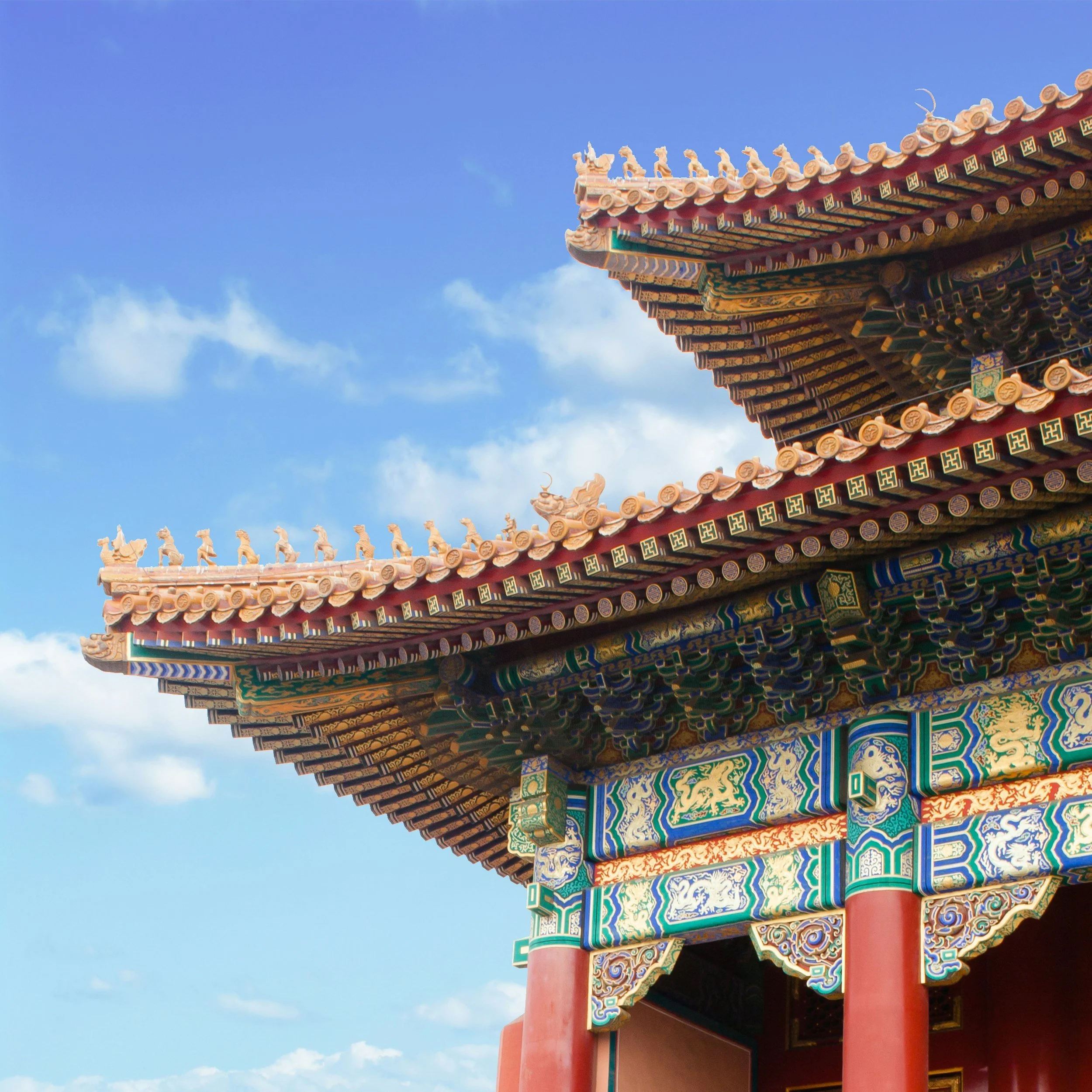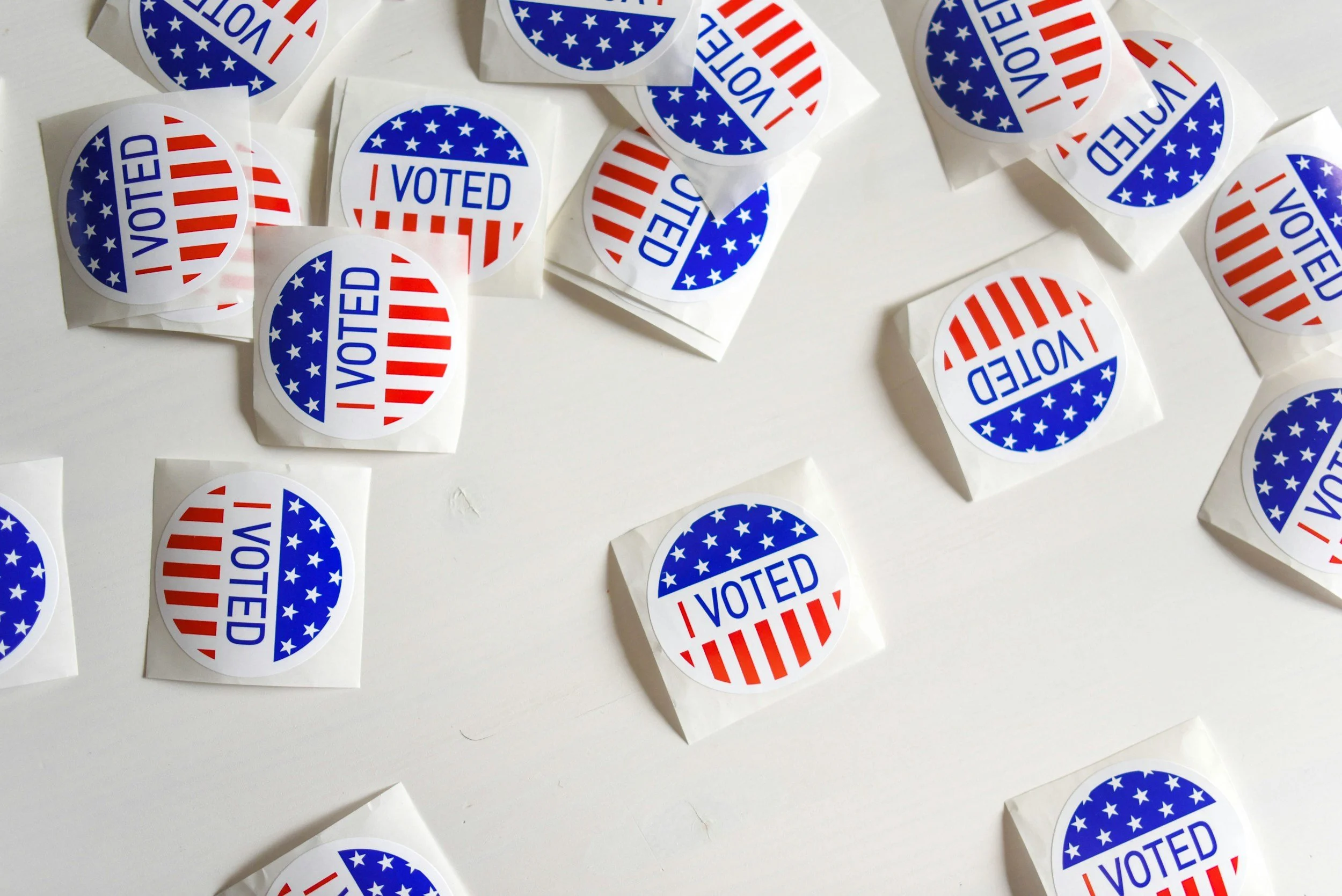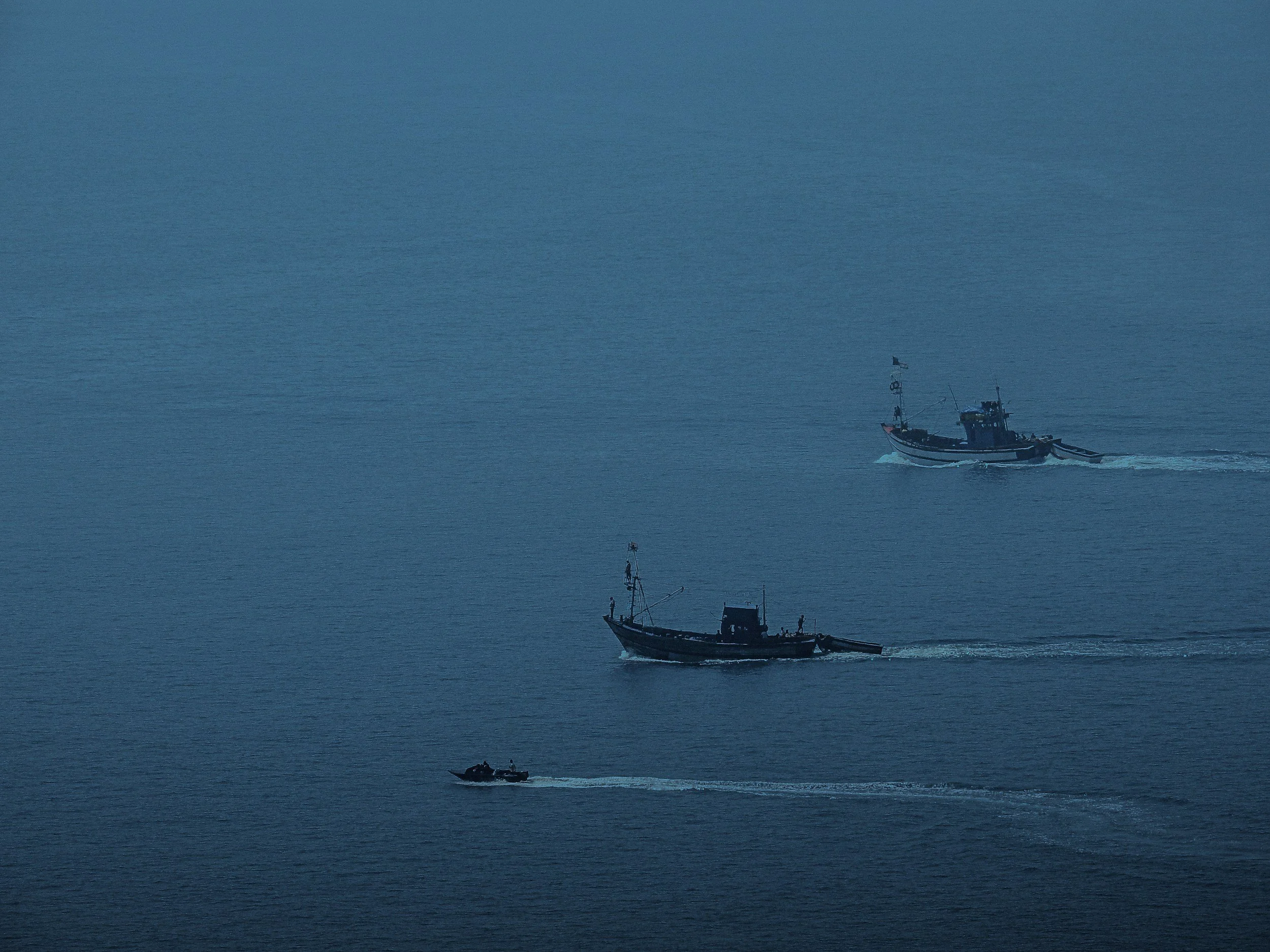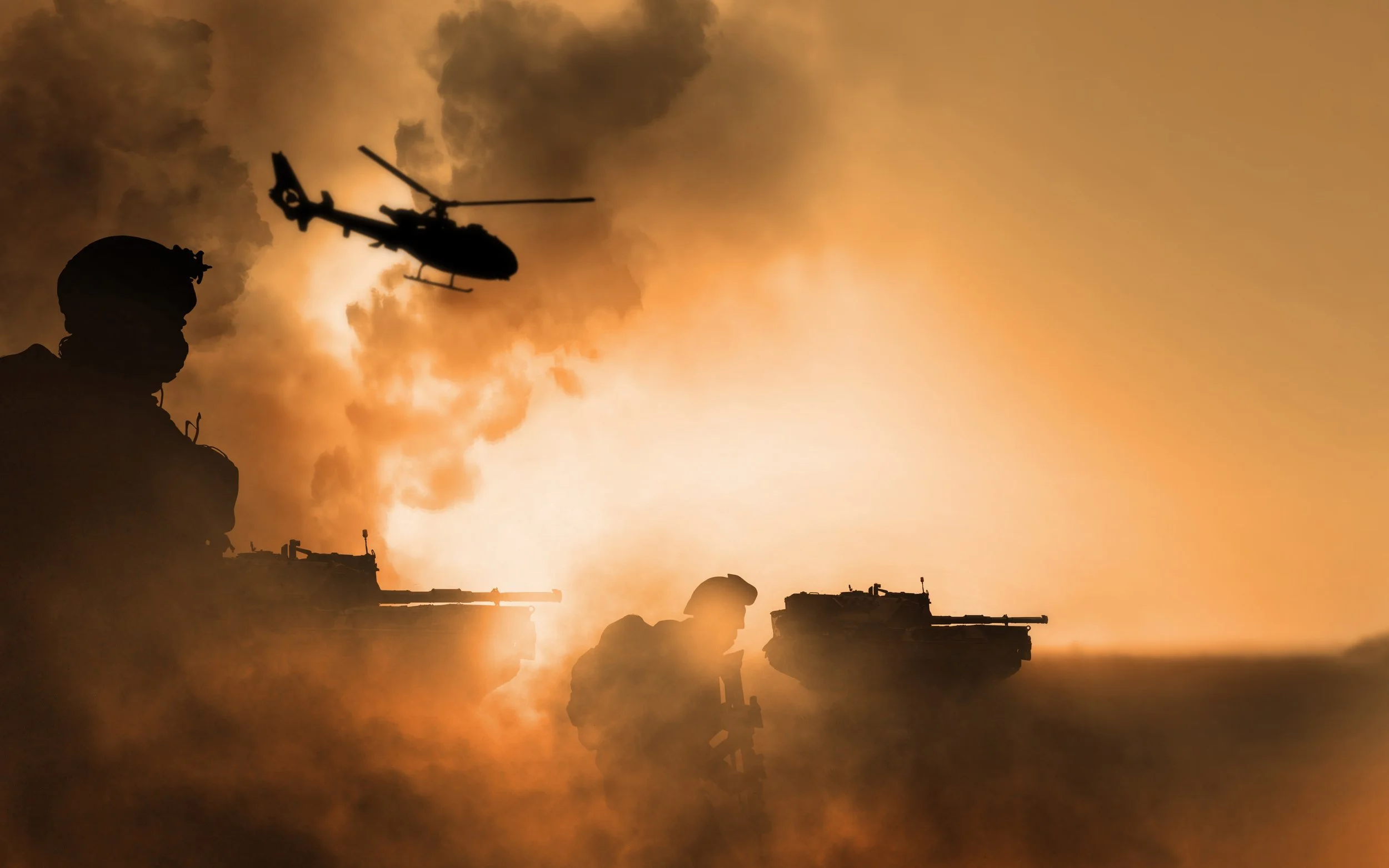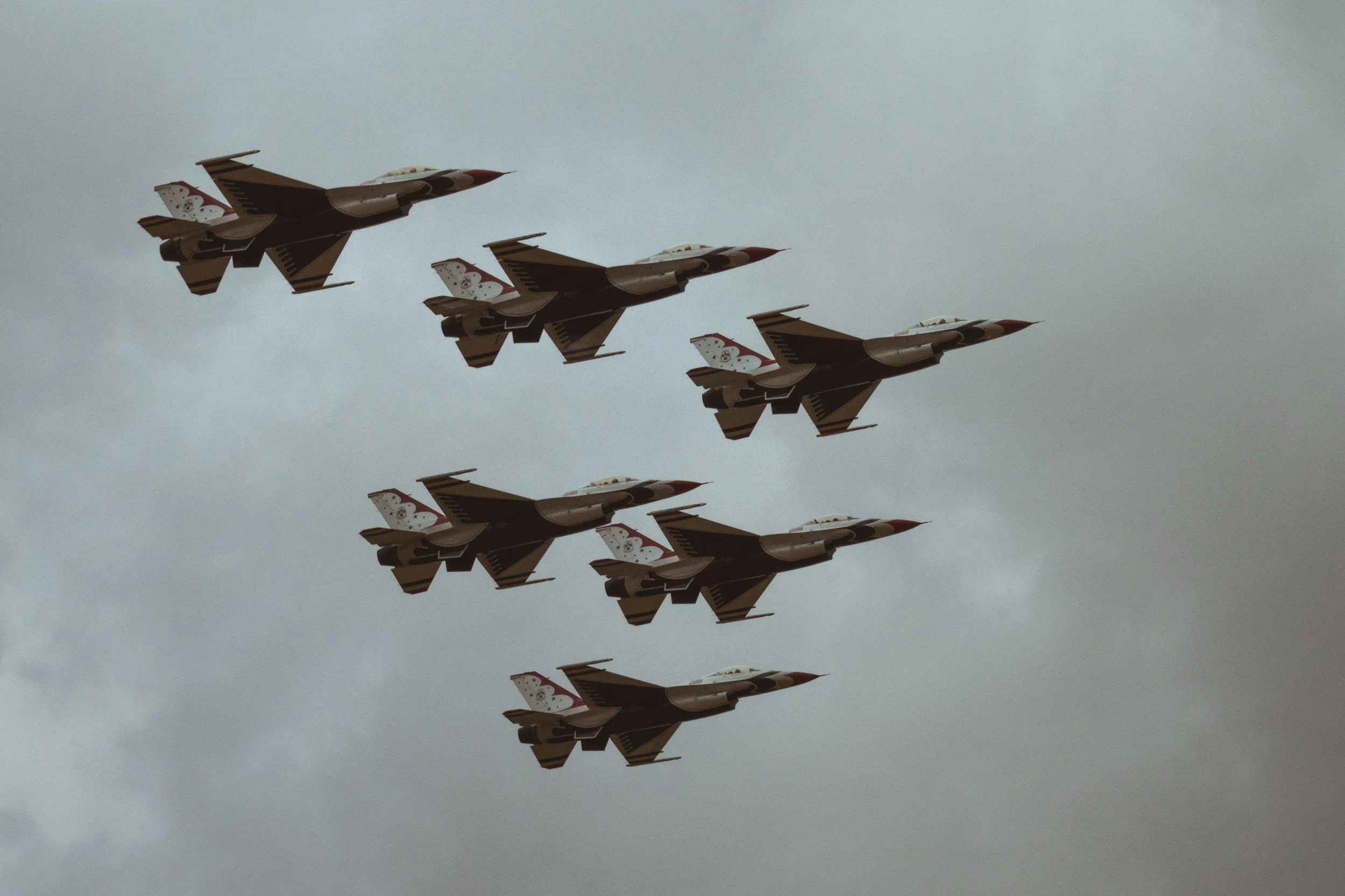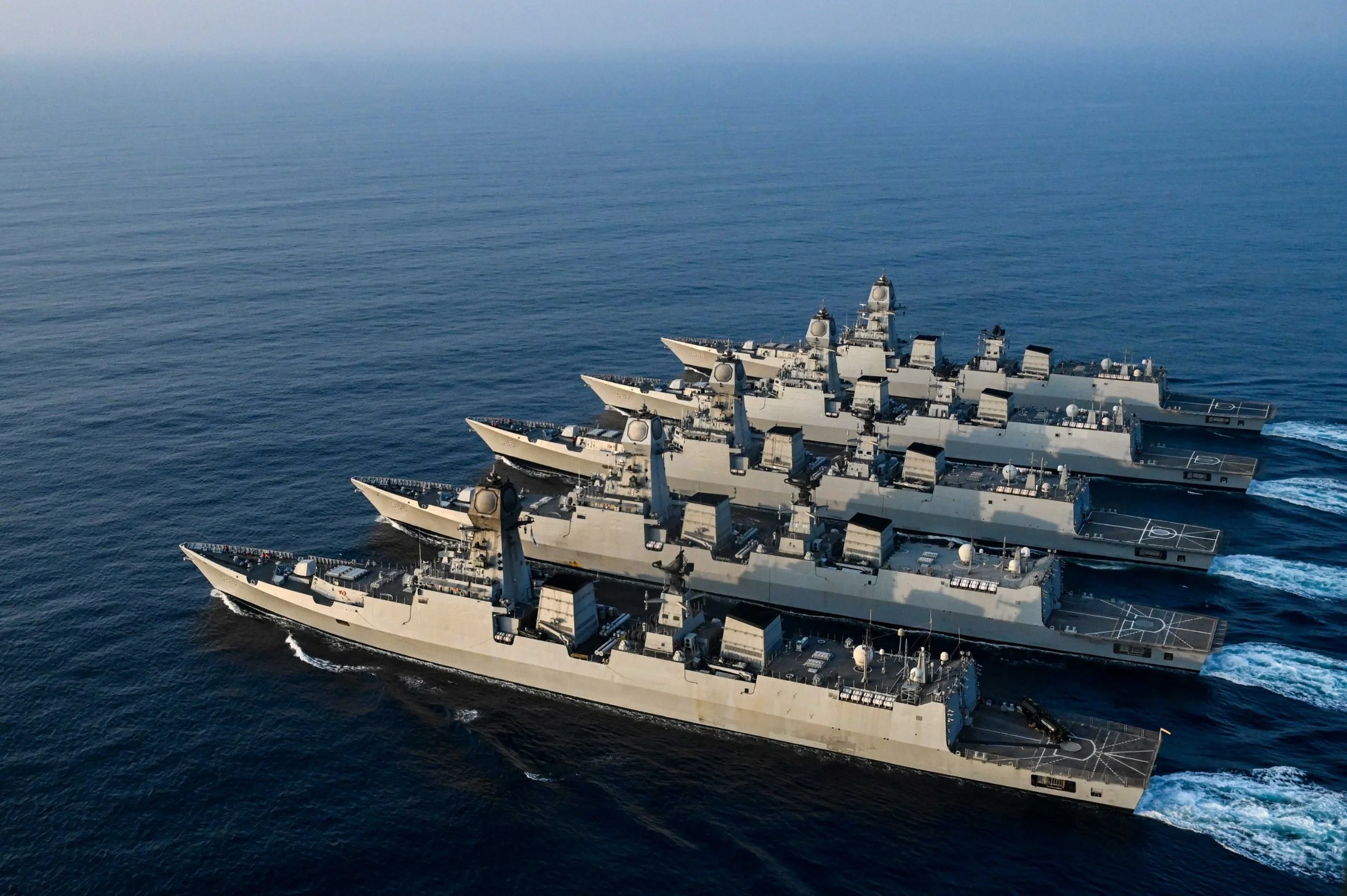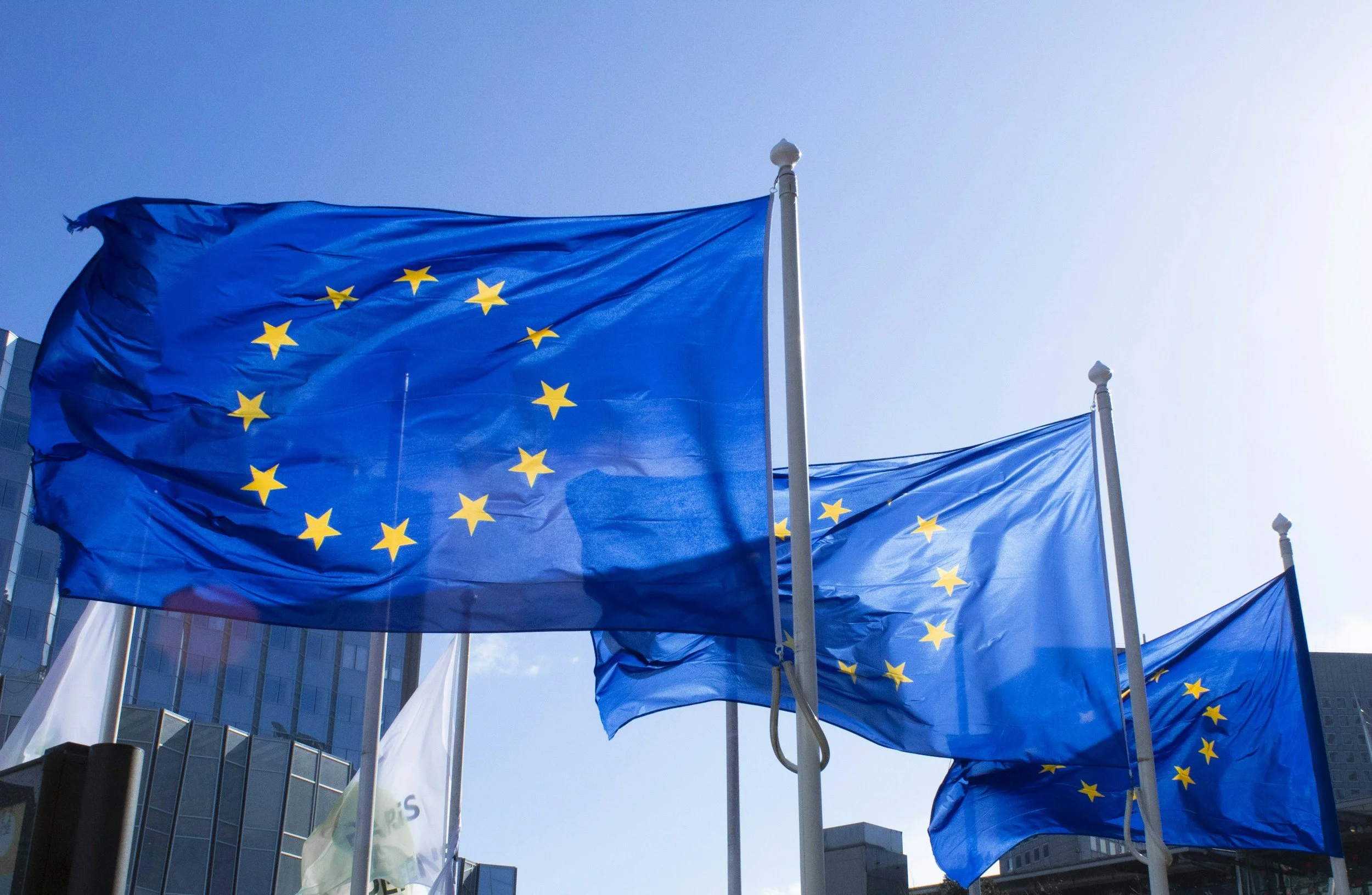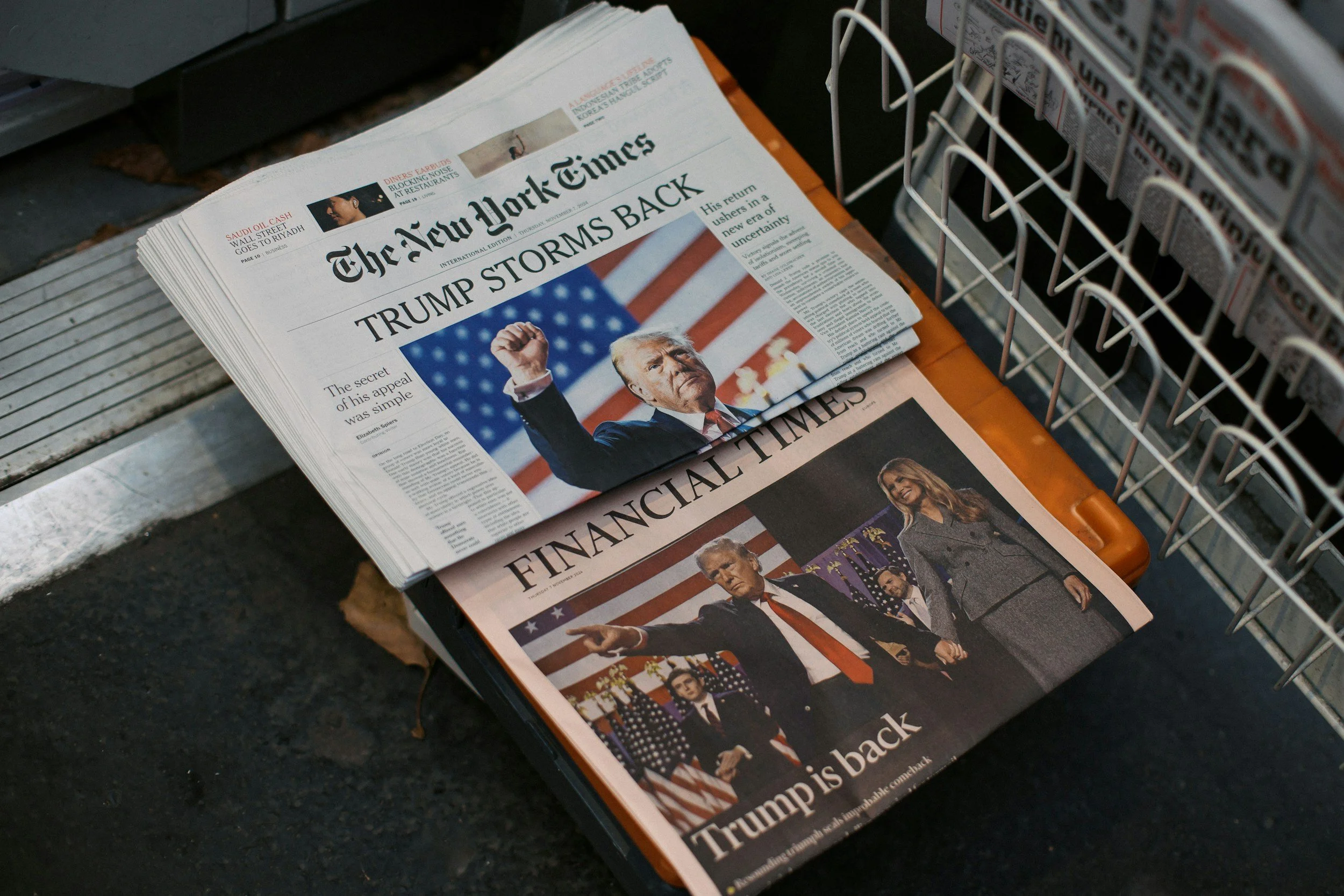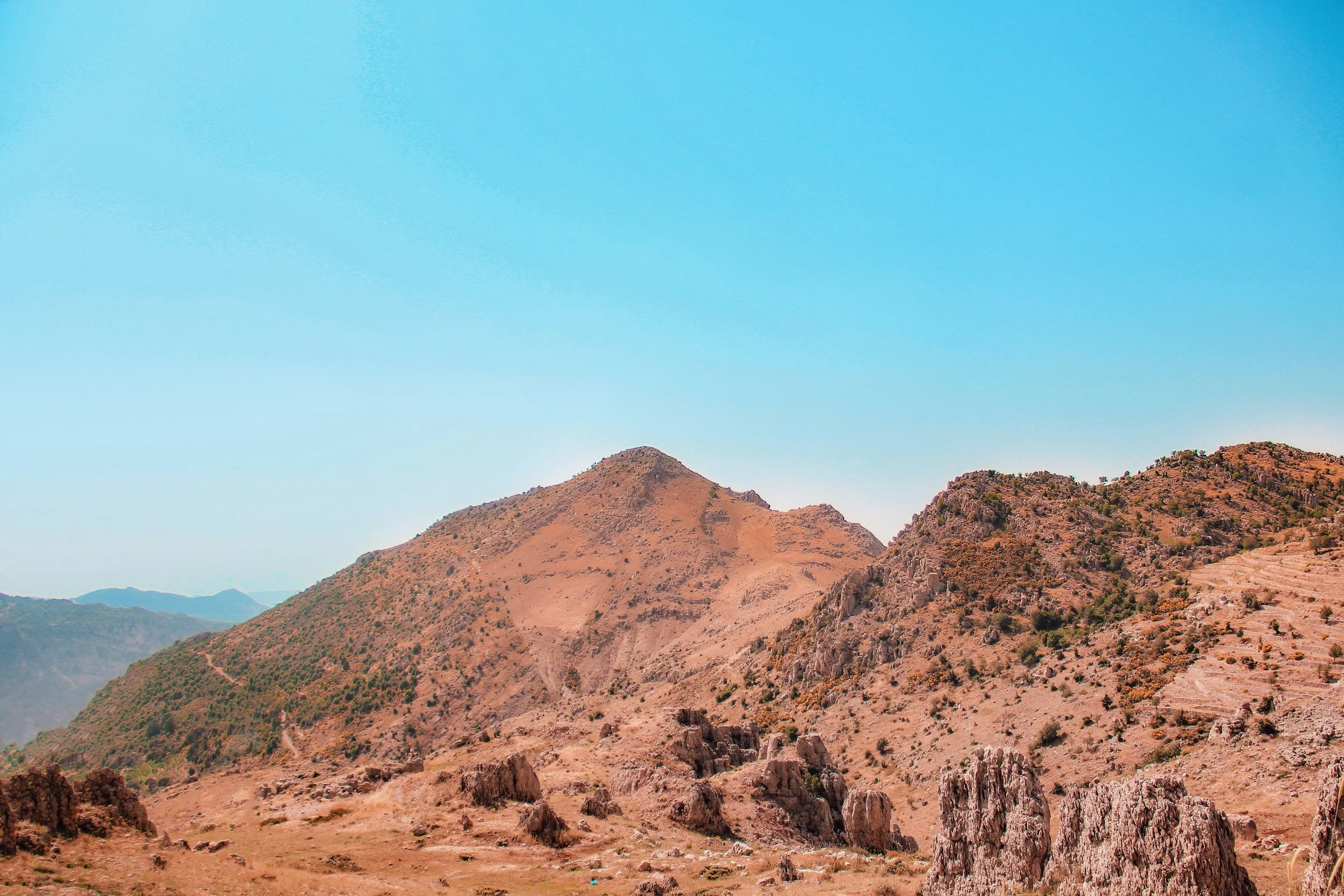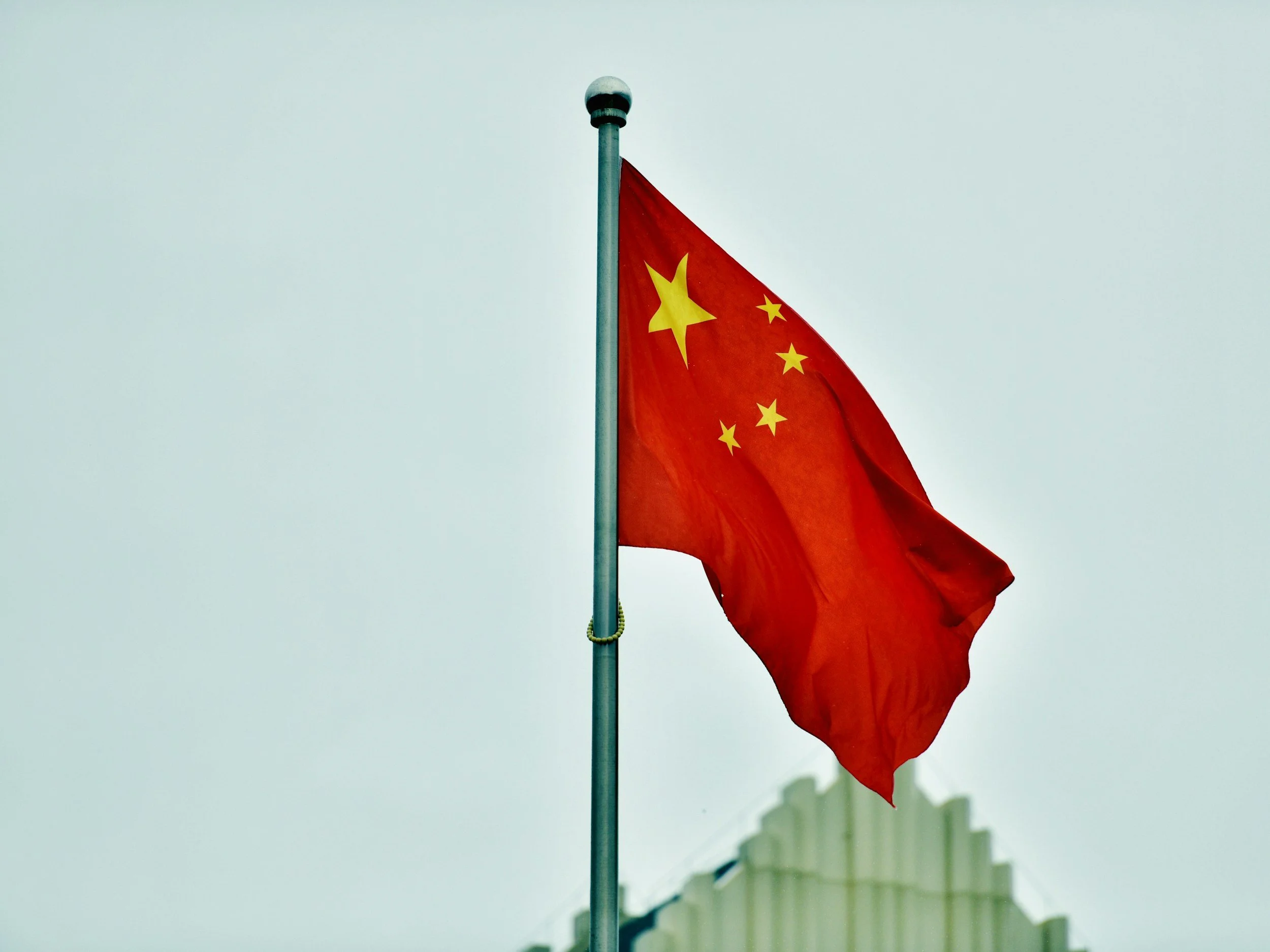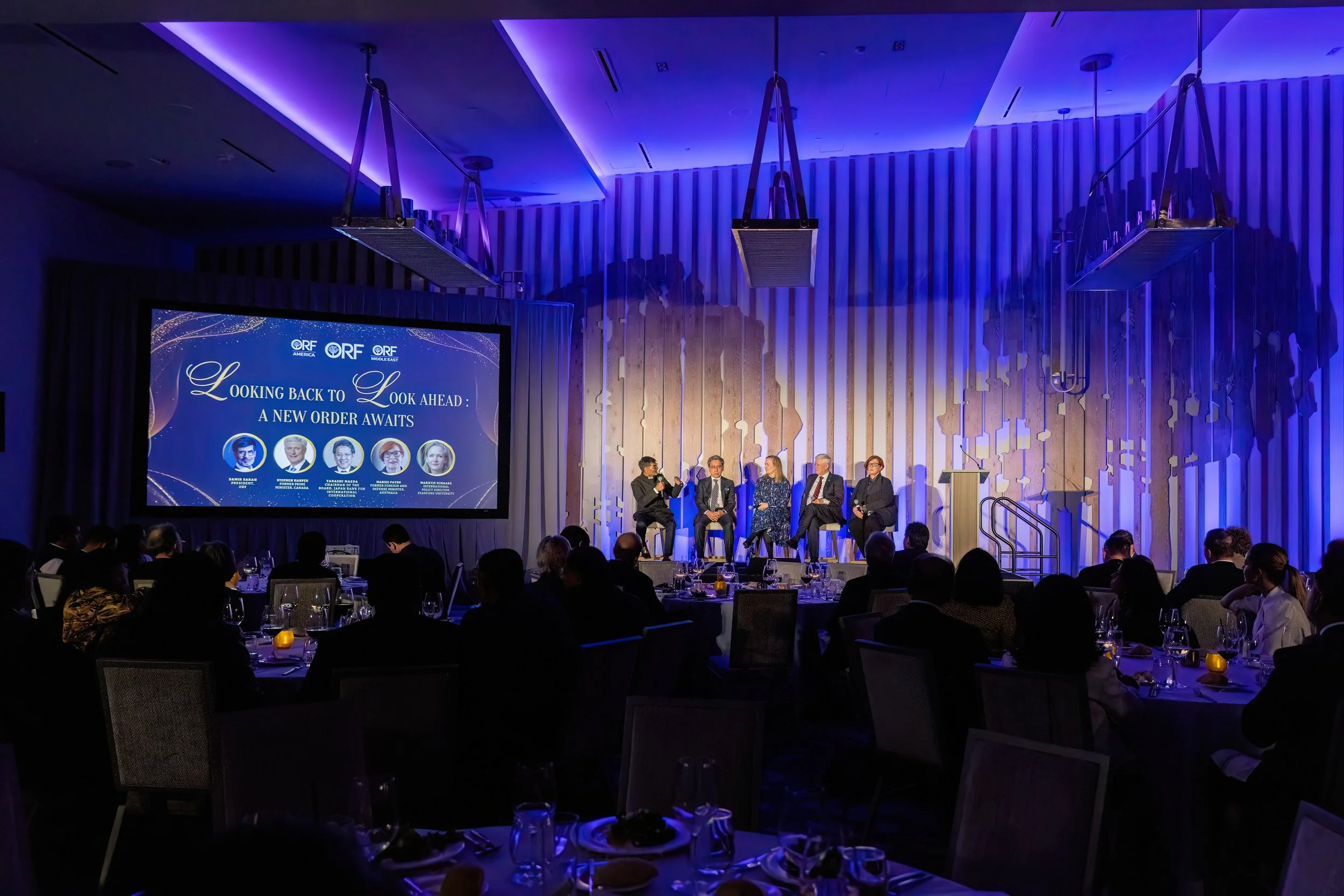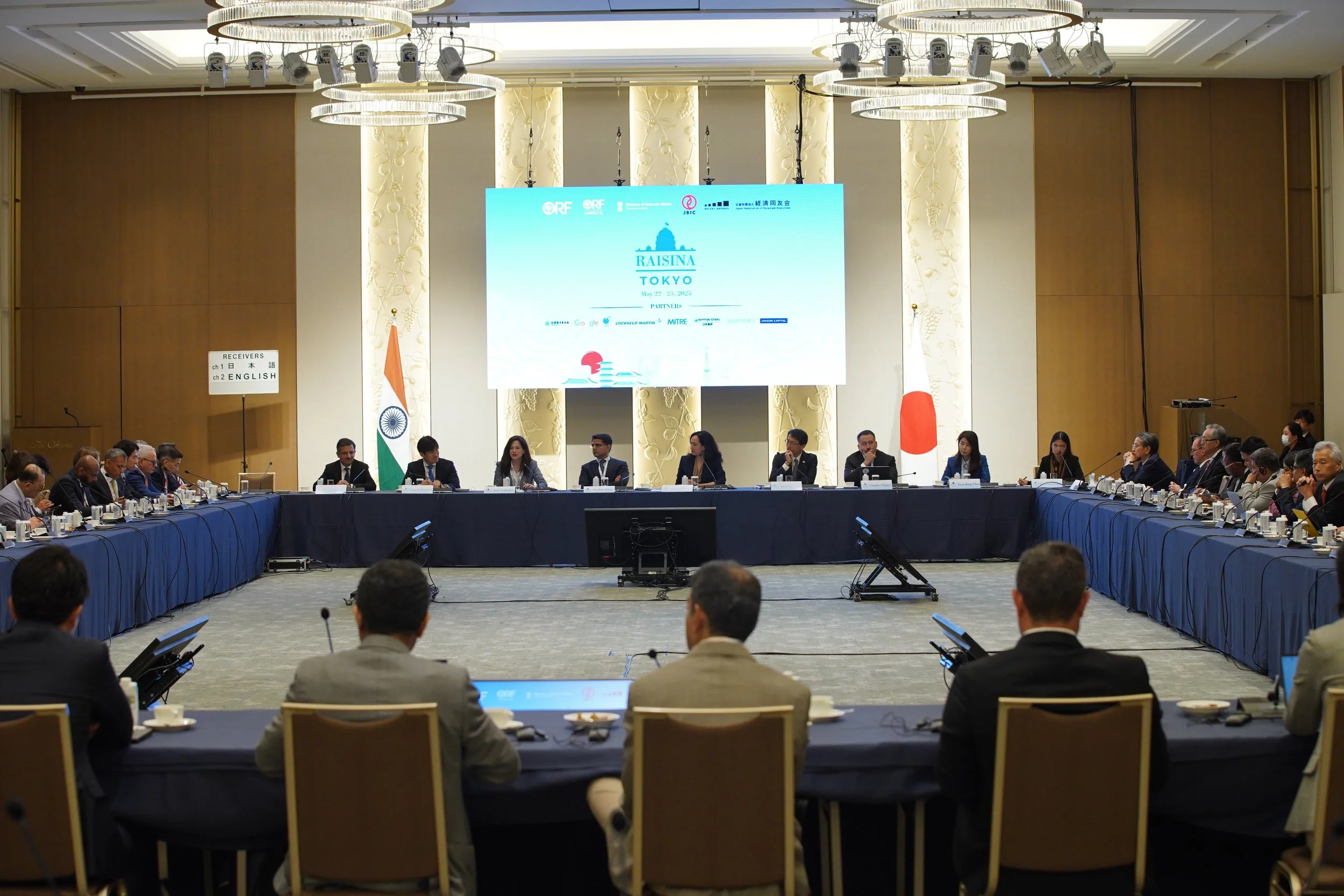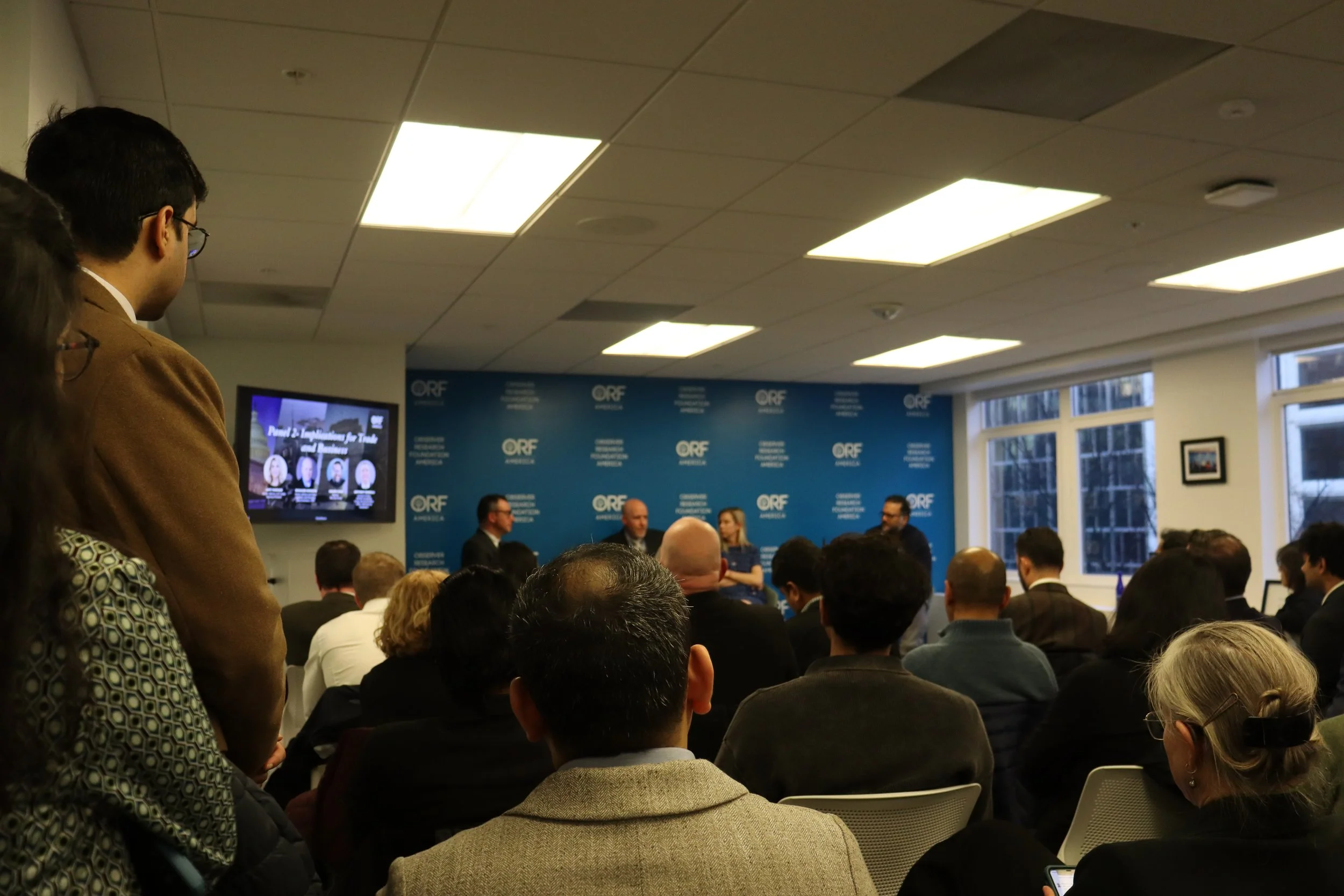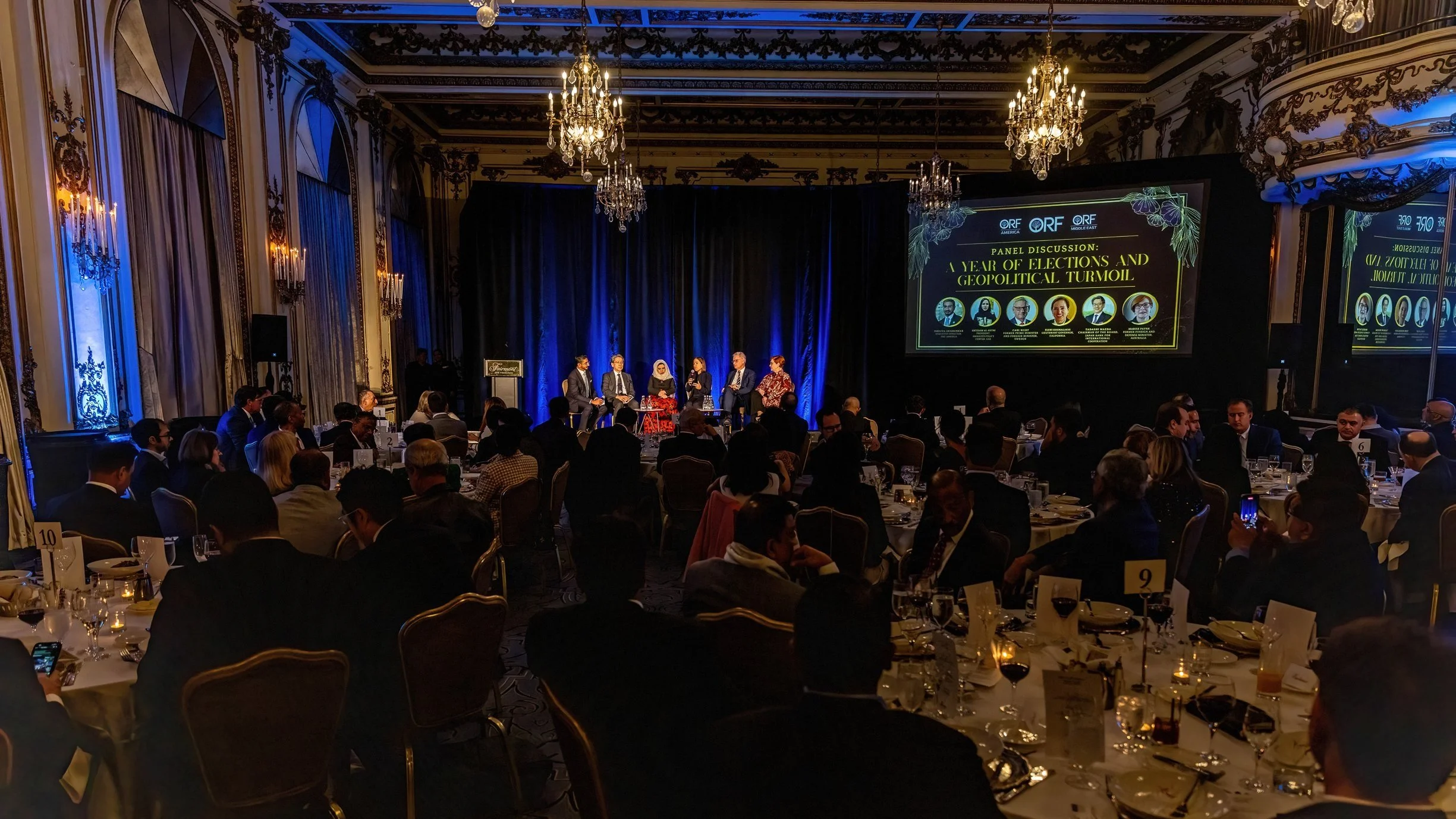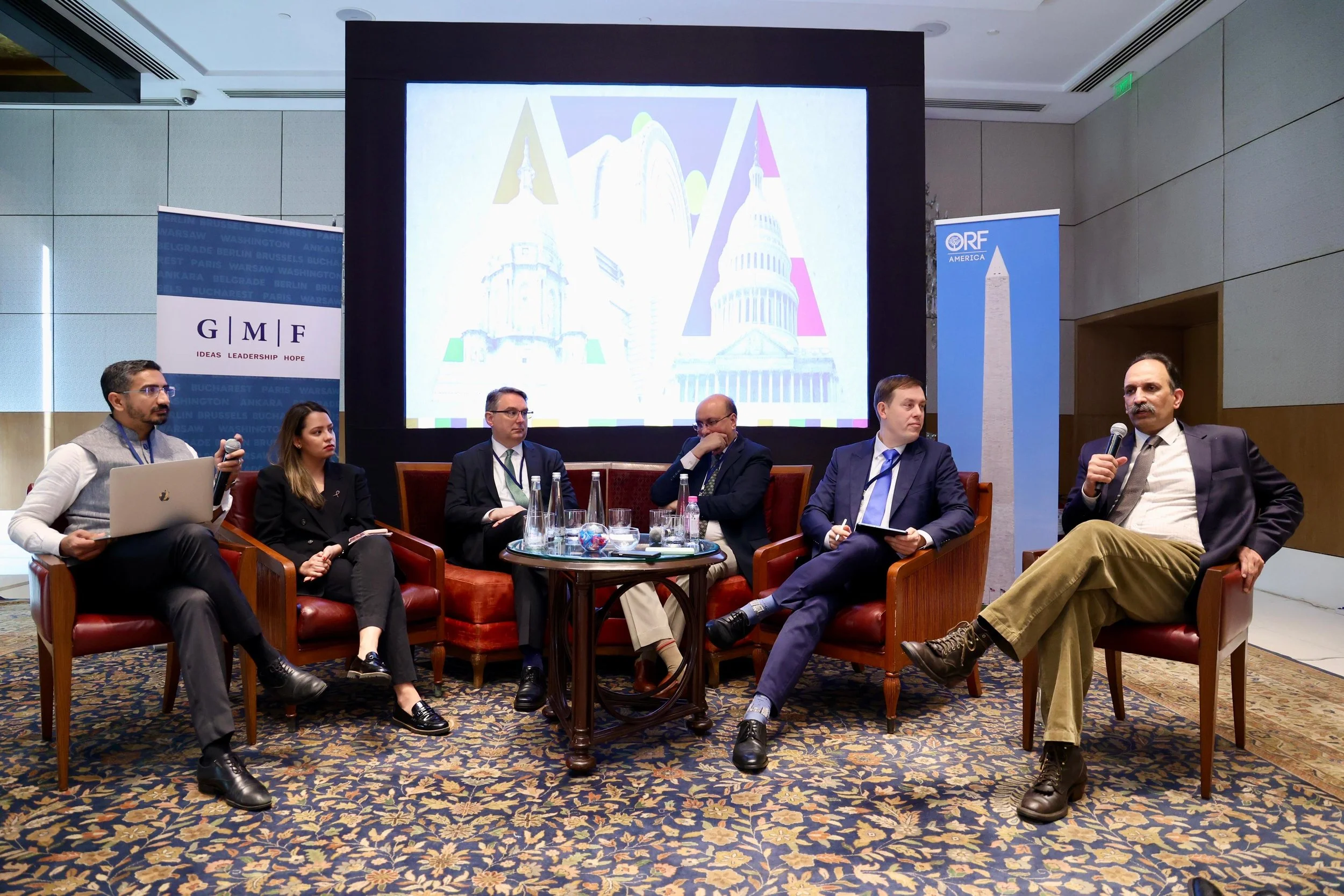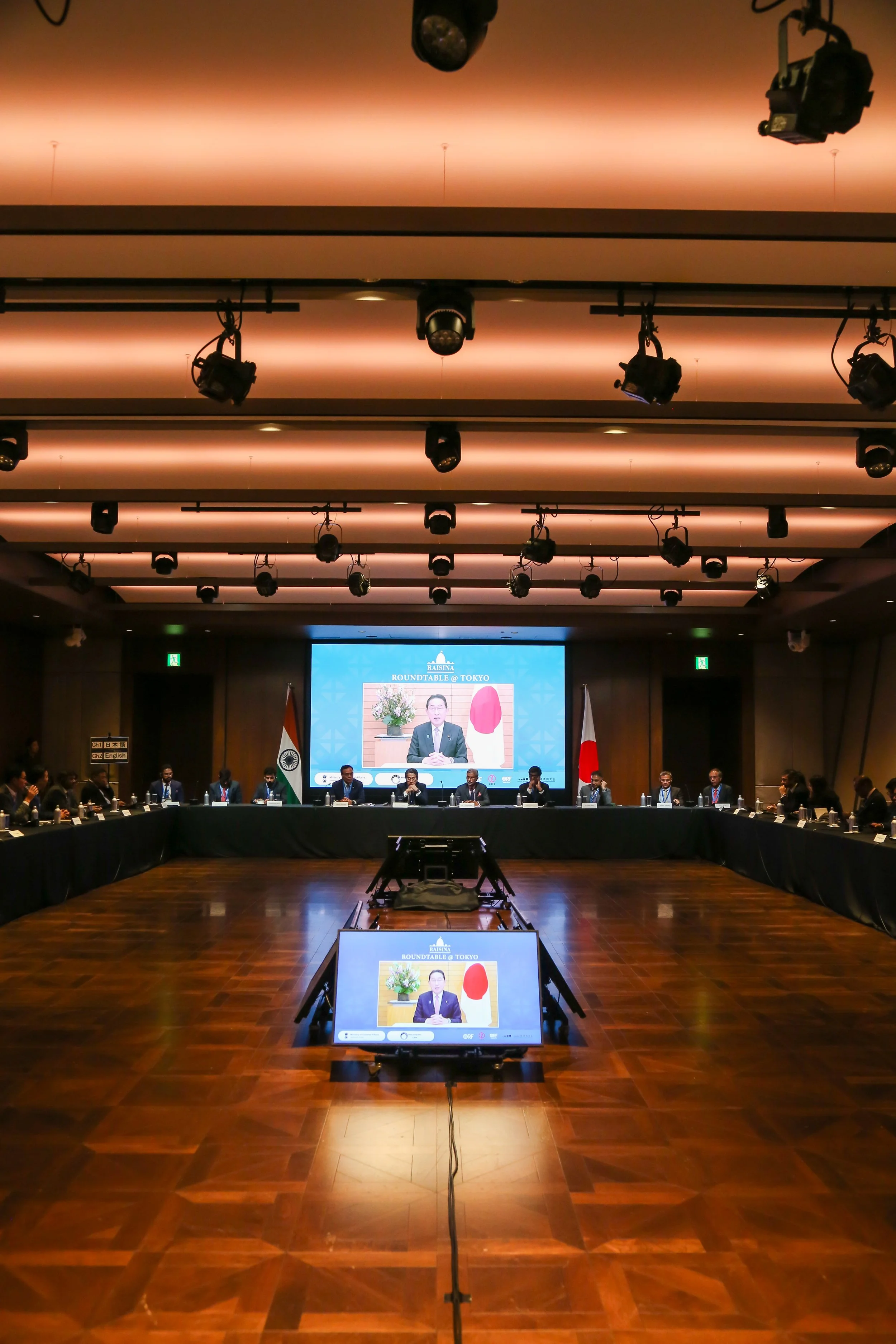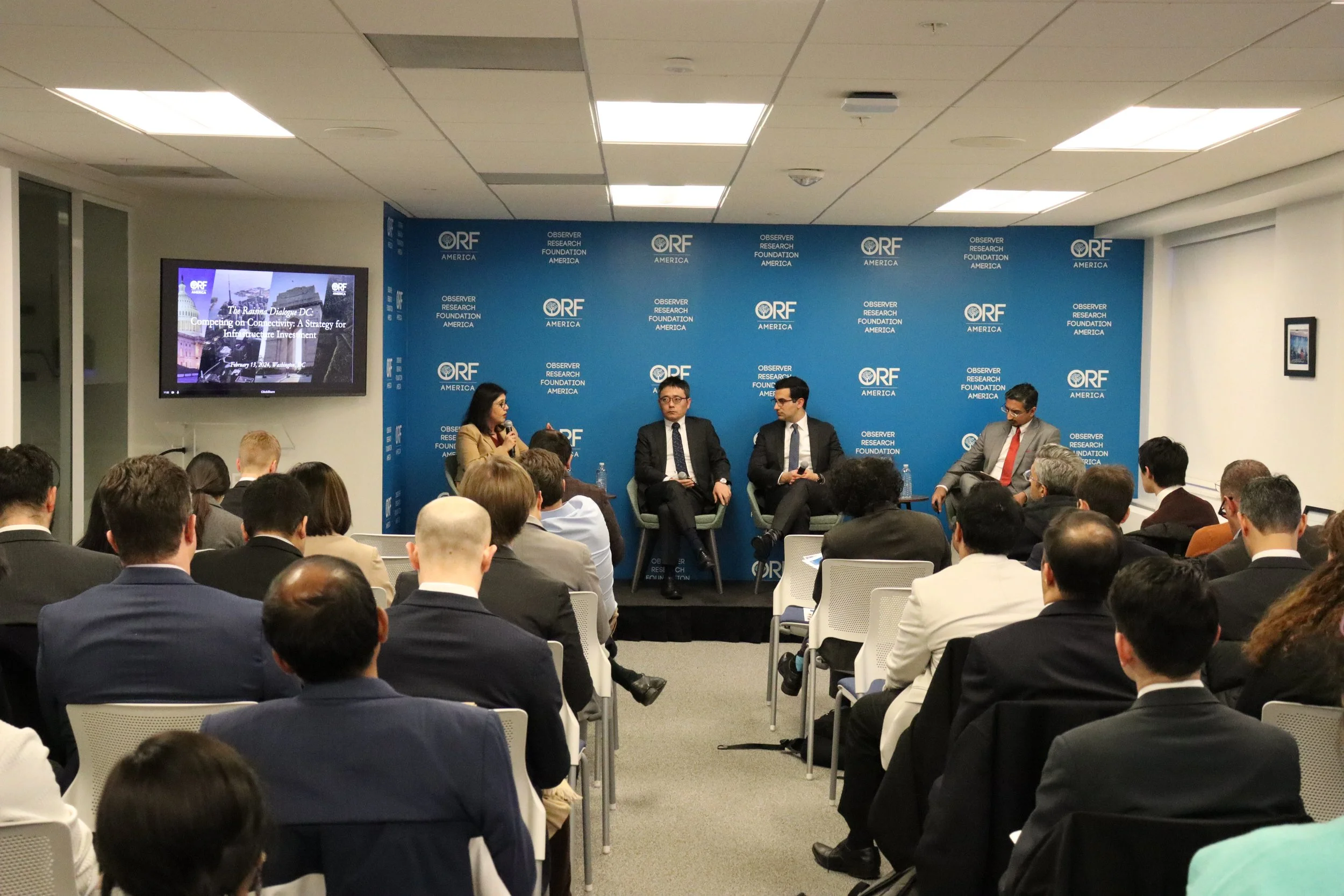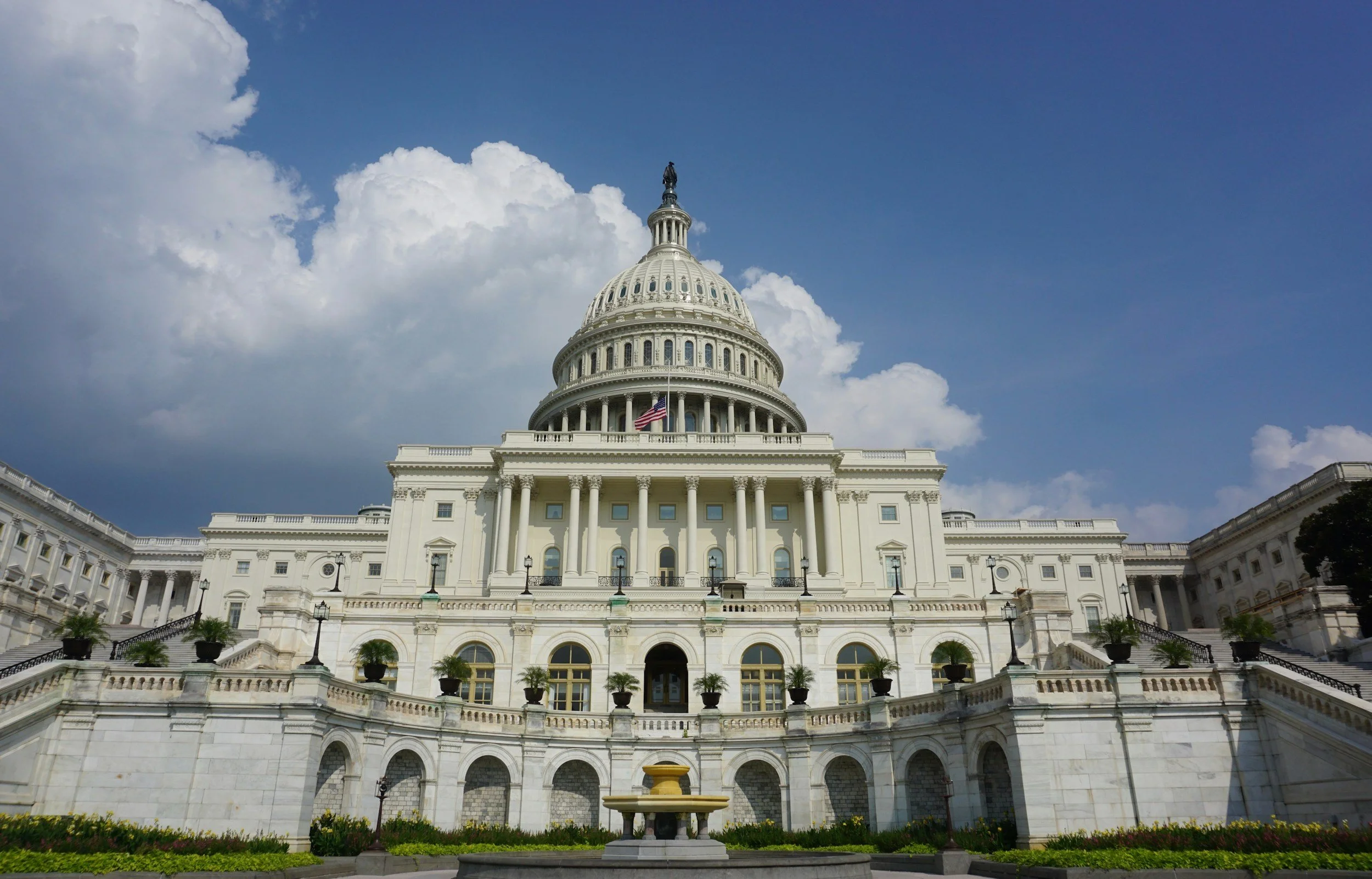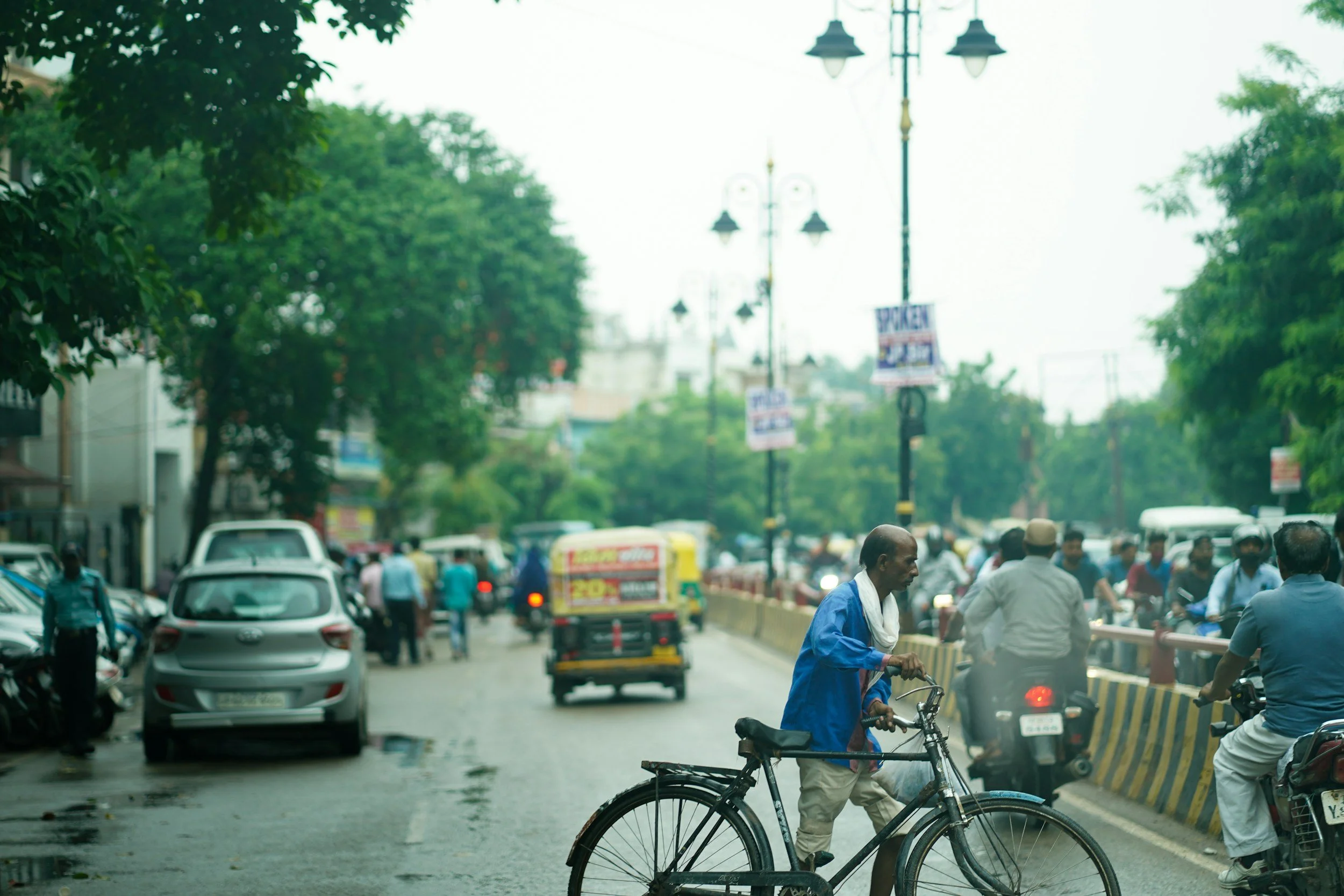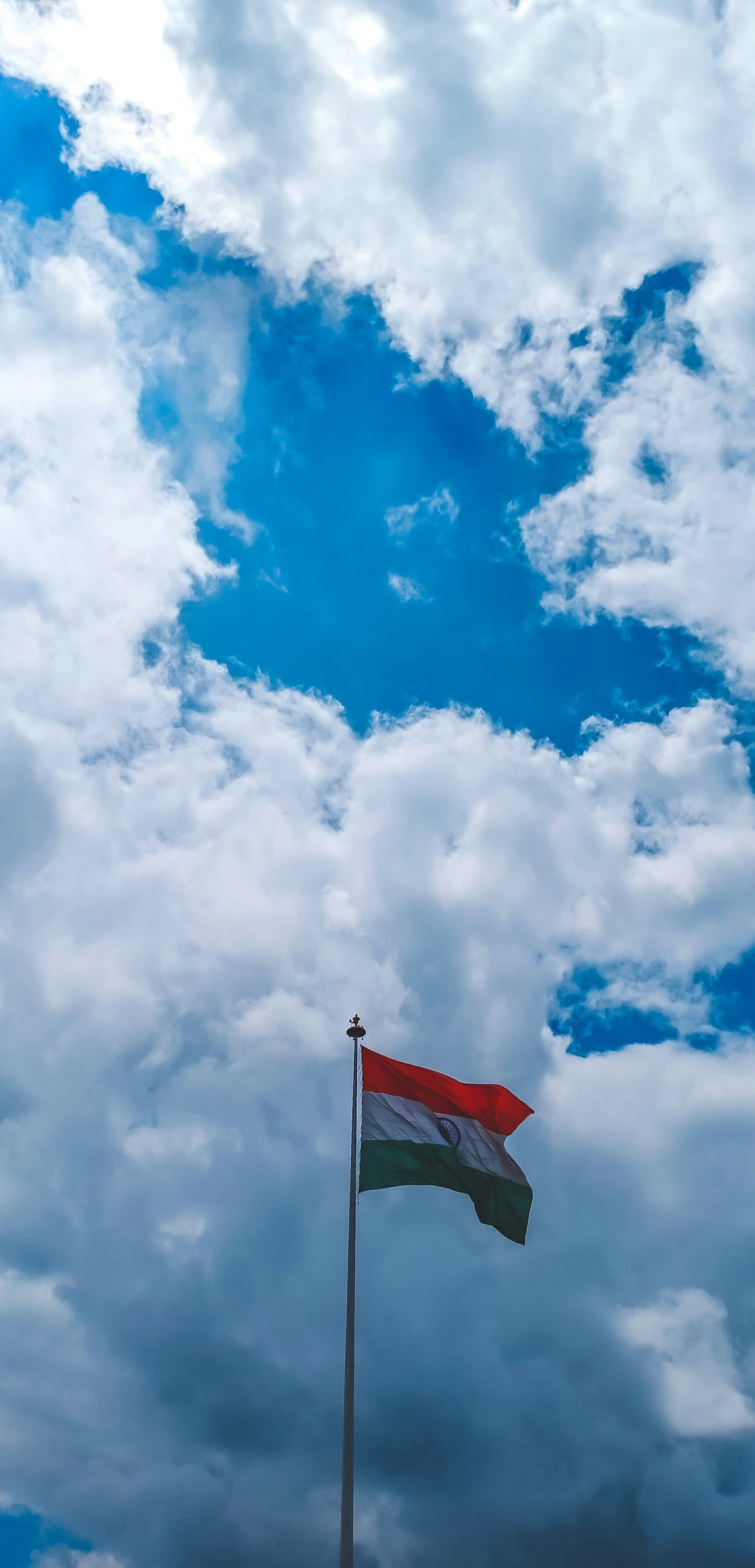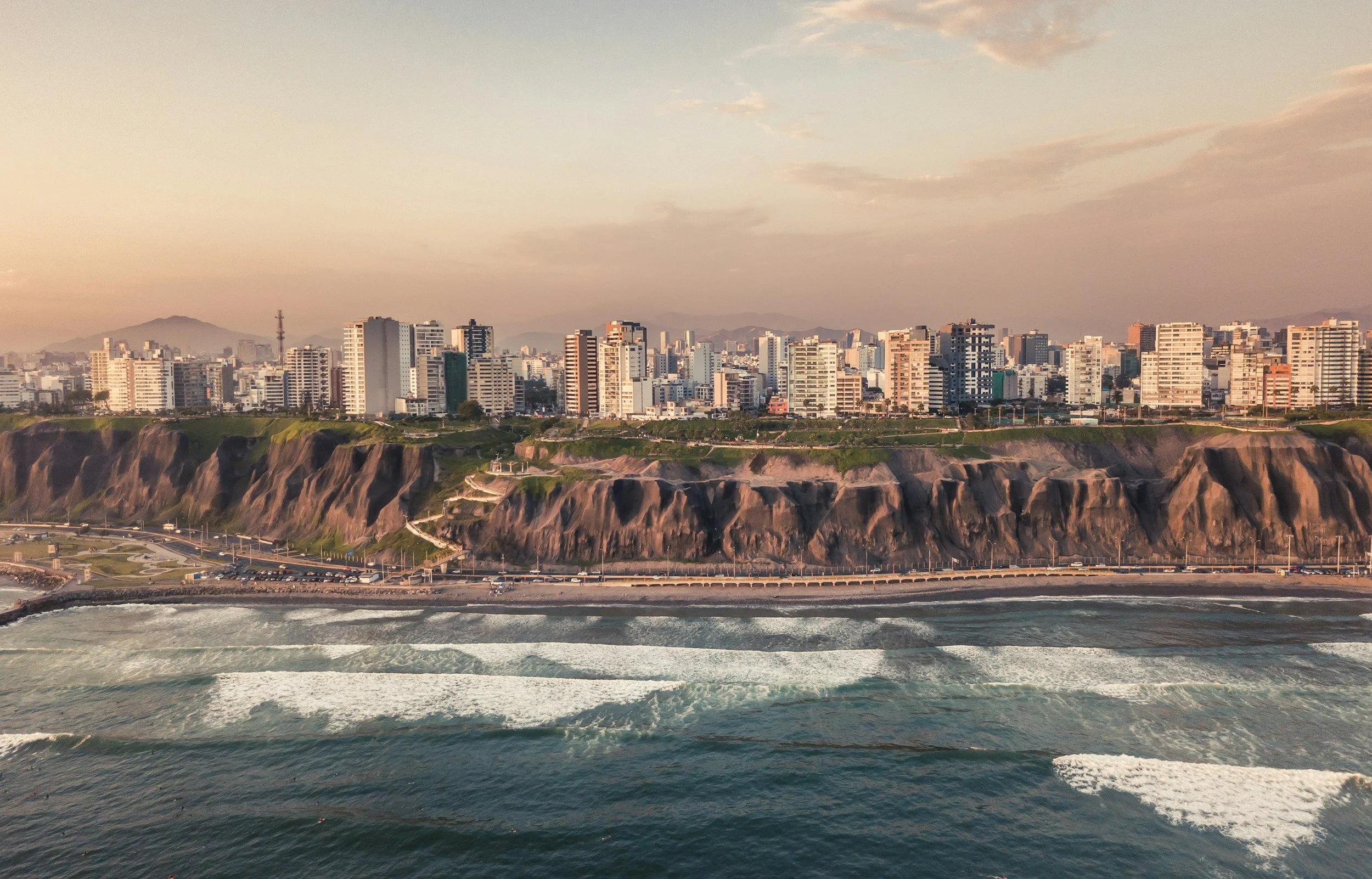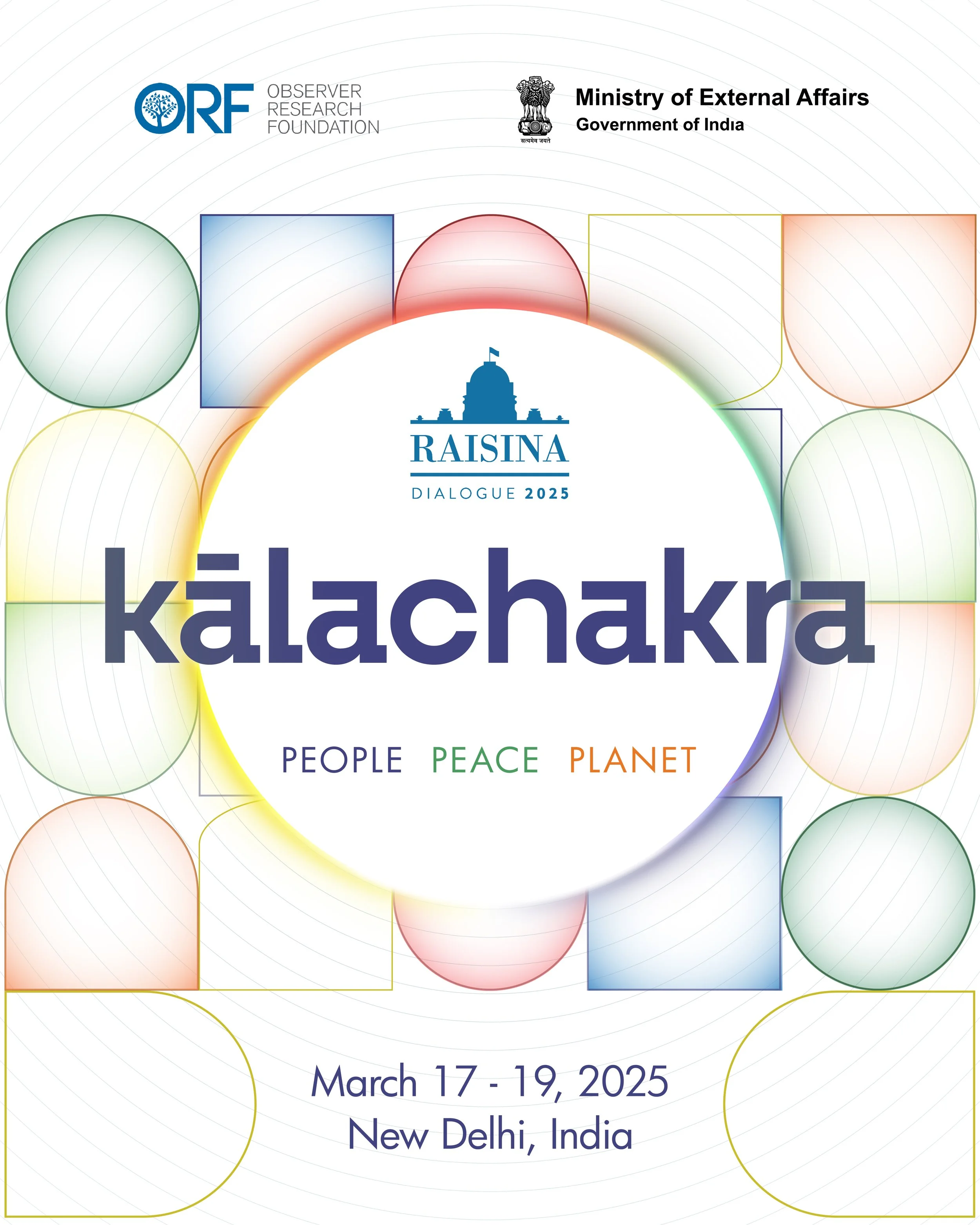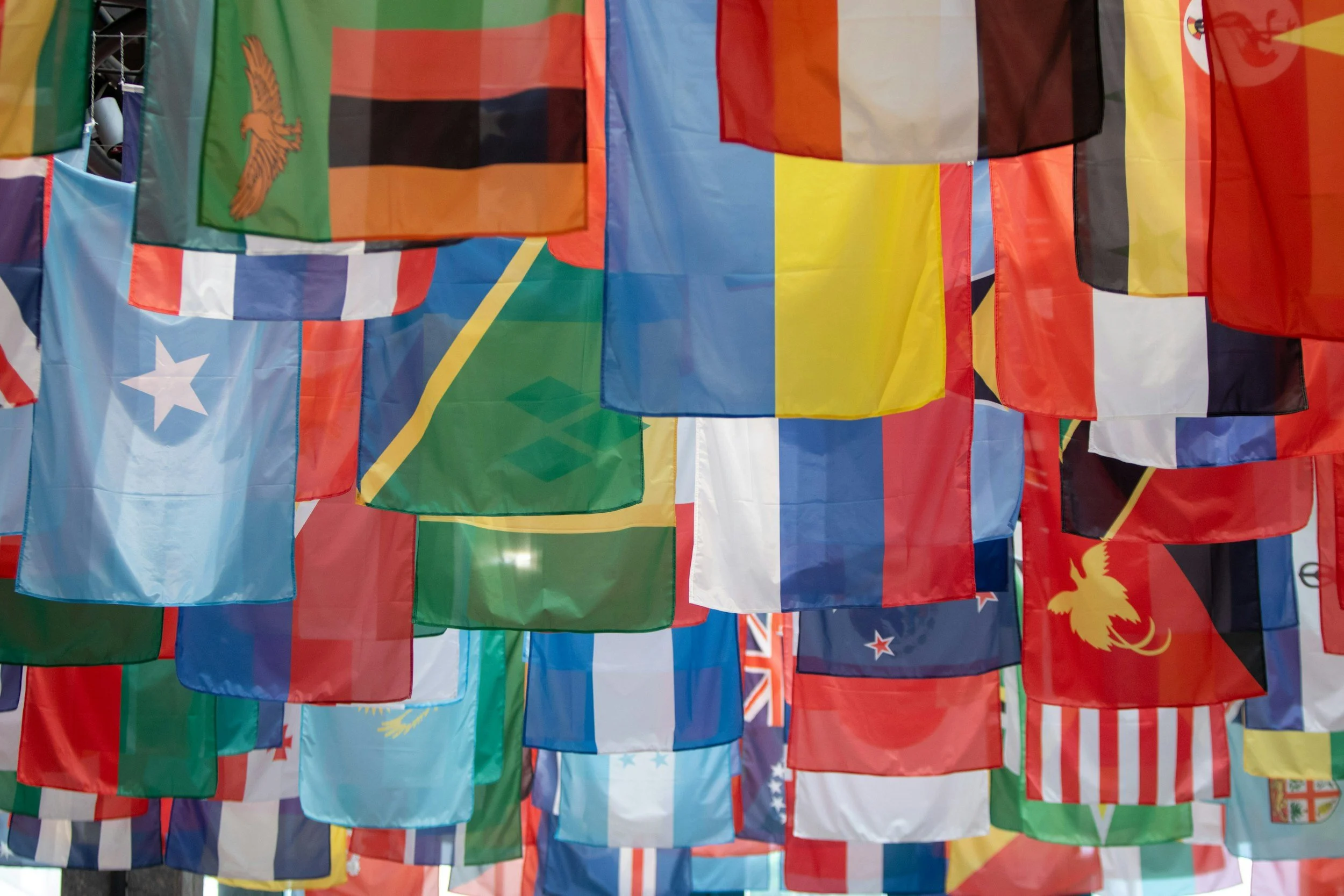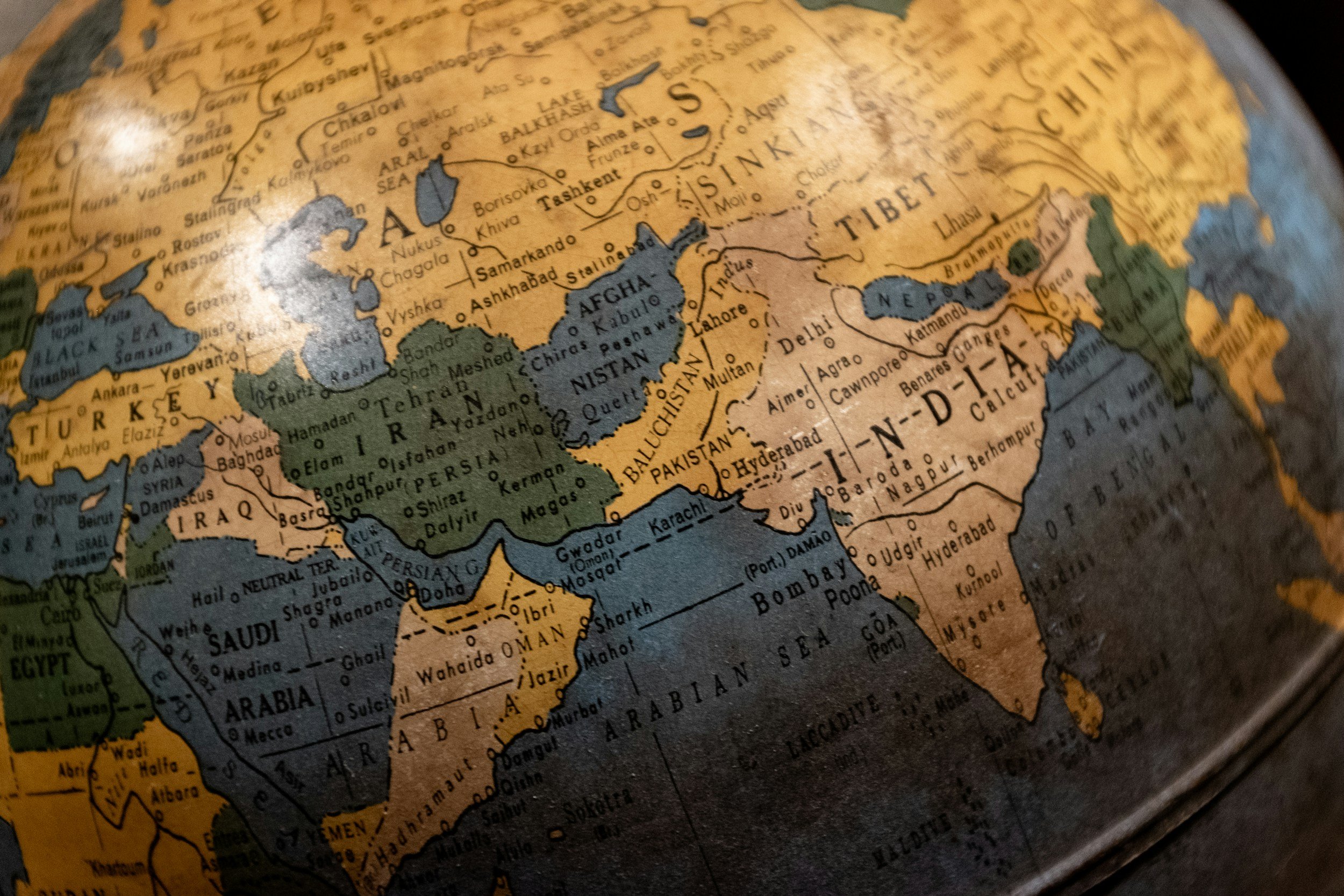Dhruva Jaishankar
Executive Director

Dhruva Jaishankar
HIGHLIGHTS
2016-2019: Fellow, Foreign Policy Studies at Brookings India in New Delhi and the Brookings Institution in Washington DC.
2012-2016: Transatlantic Fellow, German Marshall Fund of the United States, Washington DC
Dhruva Jaishankar is Executive Director of the Observer Research Foundation America (ORF America), a public policy think tank in Washington DC, which he helped establish in 2020. In this capacity, he has also served as Vice President - Americas at the Observer Research Foundation (ORF) since 2025 and is an ex officio member of ORF America's Board of Directors. He is also the author of Vishwa Shastra: India and the World (Penguin India, 2024), an introduction to India's international relations.He also writes regularly for the Hindustan Times newspaper in India.
Mr. Jaishankar was previously a Fellow in Foreign Policy Studies at Brookings India in New Delhi and the Brookings Institution in Washington DC. Prior to that, he was a Transatlantic Fellow with the German Marshall Fund (GMF) in Washington DC. From 2009 to 2012, he was program officer with the Asia Program at GMF. Before that, he worked as a research assistant at the Brookings Institution in Washington and as a news writer and reporter for CNN-IBN television in New Delhi.
In 2015-2016, Jaishankar was a Visiting Fellow with the S. Rajaratnam School of International Studies at Nanyang Technological University in Singapore. He has also been a Non-Resident Fellow with the Lowy Institute in Australia, a David Rockefeller Fellow with the Trilateral Commission, an IISS-SAIS Merrill Center Young Strategist, and a Brent Scowcroft Award Fellow with the Aspen Strategy Group. He holds a B.A. in history and classics from Macalester College, and an M.A. in security studies from Georgetown University.
His commentary has appeared in Indian and international publications, including in print in Foreign Affairs, The Globe & Mail, The Hindu, Indian Express, India Today, Politico, The Straits Times, and The Times of India and online for The Atlantic, BBC World, Foreign Policy, Lawfare, The New York Times, Project Syndicate, War on the Rocks, and The Washington Post. He has also been featured in reports by Bloomberg, CNN International, The Economist, The Financial Times, National Public Radio, Time, and The Wall Street Journal.
vishwa shastra out now
Dhruva Jaishankar's book 'Vishwa Shastra: India and the World' was published by Penguin Random House India in December 2024.
History
A brief but comprehensive overview of India's interactions with the world, from ancient times to the present day.
National Strategy
A roadmap for India's present and future international policies, outlining 5 main objectives and 14 priorities.
Bibliography
A resource, listing over 250 books for further exploration.
publications
Edited Volume
By Dhruva Jaishankar, Anit Mukherjee, Anirban Sarma, Mannat Jaspal, Nilanjan Ghosh, and Sunaina Kumar
Editors: Sharon Stirling and Eszter Karacsony
By Dhruva Jaishankar and Ammar Nainar
Once a quiet backstage function of the armed forces, defence diplomacy has emerged as one of India's sharpest tools of statecraft. From joint exercises and training missions to disaster relief and maritime surveillance, India's military now operates far beyond the battlefield: building trust, shaping partnerships, and projecting the country's strategic interests on a rapidly shifting global stage.
By Dhruva Jaishankar
A strong transatlantic bond that for almost eight decades had evolved into a highly integrated defense and economic system among the world’s leading industrial economies – institutionalized under the North Atlantic Treaty Organization (NATO) and G7 – now faces new stresses.
By Dhruva Jaishankar
In its diplomacy, India has reprioritized its near neighborhood, extending financial, developmental, and trading benefits to other South Asian countries and revitalizing more productive regional institutions.
By Dhruva Jaishankar
For India, navigating U.S. export controls remains a challenge 20 years since the civilian nuclear agreement was signed.
By Dhruva Jaishankar
Learnings from Delhi’s past should help in shaping the future as India bets big on new critical technologies.
By Dhruva Jaishankar
The EU and India both have apprehensions about China’s economic and manufacturing supremacy threatening employment and businesses at home.
By Dhruva Jaishankar
Trump and Modi announced a wide-ranging agenda to take the bilateral relationship forward. It included efforts that built upon the progress made during the Biden administration, particularly in terms of technology, defense, and regional cooperation.
By Dhruva Jaishankar
Understandably, Germany will be preoccupied in the short term with Europe’s eastern and southern flanks, the transatlantic relationship, and the Middle East, but Berlin has important economic and security interests in the Indo-Pacific.
"Rebalancing Globalization: Perspectives from the Global South" attempts to provide a framework for the next phase of globalization that is rebalanced and sustainable and can address issues that matter to the Global South.
Edited Volume
By Anit Mukherjee, Dhruva Jaishankar, Alan Gelb, Pamla Gopaul, Marta Bengoa, Shayak Sengupta, Aude Darnal, Elizabeth Sidiropoulos, Udaibir Das, Veronica Jijon, and Lorrayne Porciuncula
Editors: Anit Mukherjee and Dhruva Jaishankar
While there is no shortage of analysis and speculation of China’s capabilities and behavior today, it is imperative to keep an eye on longer-term developments and remain open to uncertainties that could shape China’s strategic outlook.
Joint Report
By Shikha Aggarwal, Divyank Chaudhary, Lily McElwee, Aaron Glasserman, Keshav Kelkar, Kento Mashiko, Takuya Matsuda, Helen Mitchell, Philip Rogers, Rena Sasaki, David Saultry, and Neil Thomas
Editors: Dhruva Jaishankar and Greg Brown
By Dhruva Jaishankar
While the direct implications for India might be less than for others, the 2024 U.S. presidential election will undoubtedly have indirect effects on India.
By Dhruva Jaishankar
Why should Indo-Pacific nations pay attention to the U.S. presidential election and what will a change in leadership mean for existing partnerships?
By Dhruva Jaishankar
But the biggest obstacle remains China. China alone among the P-5 has not voiced support for the expansion of permanent UNSC seats but often hides behind others in negotiations.
Background Paper No. 23
By Tisyaketu Sirkar & Dhruva Jaishankar
By Dhruva Jaishankar
At a basic level, India’s large diaspora in the US and a shared sense of democracy continue to contribute to deepening India-US relations.
By Dhruva Jaishankar
There are important differences between Biden and Trump on alliances, climate policy, immigration, tariffs, and democracy.
By Dhruva Jaishankar
ORF America Executive Director Dhruva Jaishankar was interviewed by Adrija Chatterjee of Moneycontrol on the sidelines of the Raisina Dialogue in New Delhi.
By Dhruva Jaishankar
Taiwan’s political status will inevitably be a zero-sum matter in the intensifying global competition between China and the US.
By Dhruva Jaishankar
Nations including the US, Japan and India are preparing for a global economy characterised by gated globalisation, plurilateral or regional blocs, and competing industrial policies
By Dhruva Jaishankar
Prague’s experience with Beijing also exposes the limitations and fragility of China’s global outreach
By Dhruva Jaishankar
Economic, demographic, and commercial factors are driving India’s outreach. Advancing the Global South agenda may prove to be its enduring legacy
By Dhruva Jaishankar
The world is facing enormous change in the decade ahead. And one of the key ones will be that alliances will be defined less by military treaties and more by choices on critical and emerging technologies.
By Dhruva Jaishankar
A shared sense of challenges, deepening people-to-people and commercial links, and the diminishing relevance of prior obstacles such as Pakistan have paved the way for more meaningful India-US relations
comments
By Dhruva Jaishankar with Pratnashree Basu, Kartik Bommakanti, Lindsey Ford, and Kabir Taneja
The re-election of Donald Trump in the United States (US) has introduced a wave of turbulence to the international system, reversing certain pre-existing trends while accelerating others. Meanwhile, the war in Ukraine continues to contribute to Europe’s rearmament. Israel’s strikes in Iran, Syria, Qatar, and Yemen reflect broader upheaval spreading across the Middle East and beyond. China’s competition with the US persists, extending across multiple domains and regions. Amid this backdrop, at least five major geopolitical megatrends are likely to unfold.
By Dhruva Jaishankar
Shaped by its own national objectives, advantages, and limitations, India’s AI strategy stands out in several ways, with implications for the country’s AI infrastructure and its relationship with the United States.
By Dhruva Jaishankar
The prospects of a major war involving China and the United States, and a limited war between Pakistan and India, are perhaps higher in the next three years than they have been over the preceding quarter century. Moreover, these two scenarios are connected by an increasingly intertwined China-Pakistan military relationship, which now extends beyond arms transfers to shared networks and emulated doctrines.
By Dhruva Jaishankar and Ammar Nainar
As China and the United States jostle for position, India has a modest but meaningful role to play as a security provider in the Western Pacific. Beyond the Indian Ocean, its ability to improve interoperability with willing and capable partners and assist in capacity-building efforts have only increased, notwithstanding the tenor of relations with the United States.
By Dhruva Jaishankar
The newly-elected presidency of Lee Jae Myung in South Korea has created an opportunity to advance India-South Korea relations. The greatest potential for cooperation between the two countries involves aligning South Korea’s dynamic industrial capabilities with India’s own industrialization efforts.
By Dhruva Jaishankar
Over the past few months, relations between the United States and India have gone from stable and promising to tense and turbulent..
By Dhruva Jaishankar
The sudden whiplash in public sentiment in some quarters in India is notable and will moderate the appetite in New Delhi for cooperation with Washington.
By Dhruva Jaishankar and Medha Prasanna
The United Nations Security Council (UNSC) — at the center of the United Nations system — faces twin crises. One is a crisis of legitimacy. The second is a crisis of effectiveness and relevance.
By Dhruva Jaishankar
Relations between India and Pakistan had been in deep freeze since 2019: there will now be fewer constituencies than ever in India in favor of normalization.
By Dhruva Jaishankar and Ammar Nainar
As observers struggle to make sense of Trump’s second presidential term, it is worth considering three parallel debates that are shaping these outcomes.
By Dhruva Jaishankar
A sufficiently strong response by New Delhi would send a clear message to Pakistan – and to the world – that a resumption of indiscriminate terrorist attacks is unacceptable.
By Dhruva Jaishankar
Trump’s April 2 announcement has already roiled financial markets, and the global economy will continue to be adversely affected both by the implementation of tariffs and by uncertainty as negotiations proceed. But while there will be no immediate winners, some parties appear relatively better off.
By Dhruva Jaishankar
This week's visit by Ursula von der Leyen and the senior European Commission leadership to India represents a major opportunity to advance India-EU security, connectivity, mobility, trade, investment, and technology.
By Dhruva Jaishankar
While the details of any such dialogue remain notional, Trump’s comments underscored the necessity of having such a meeting early in his tenure to set the tone for bilateral India-U.S. relations over the next four years.
By Dhruva Jaishankar
It is possible to anticipate both a burgeoning U.S.-India partnership under a second Trump administration and some short, sharp tussles over a handful of important issues.
By Dhruva Jaishankar
With fundamental changes in China's domestic politics, economy, security posture, and strategic position, can India-China relations resume from its pre-2020 ties?
By Dhruva Jaishankar
With recent conflicts in Lebanon, Israel, and Gaza, how do they impact India and its policy in the Middle East?
By Dhruva Jaishankar
The revival of the global economy will stem from multilateral efforts to achieve the United Nations' Sustainable Development Goals (SDGs) despite indications pointing to increased economic competition.
By Dhruva Jaishankar
Both the Republican and Democratic National Conventions commenced their programs this month, indicating the few months left for the 2024 U.S. presidential election. But little has been said about the candidates' approach to American foreign policy, especially regarding the future of the United States' relationship with China.
RECent events
media appearances
Dhruva Jaishankar on the newly announced U.S.-India trade deal.
Dhruva Jaishankar on U.S.-India ties to the House Foreign Affairs Committee's Subcommittee on South and Central Asia.
Dhruva Jaishankar on recent U.S.-India relations, tariffs, and new H-1B visa rules.
Dhruva Jaishankar on U.S.-India relations under Trump’s new tariffs.
Dhruva Jaishankar on “Vishwa Shastra: India and the World”.
Dhruva Jaishankar discusses the future of U.S.-India relations on the Foreign Affairs Interview with Dan Kurtz-Phelan.
Dhruva Jaishankar on U.S.-India relations during Trump’s second term, as well as challenges and opportunities for cooperation.
Dhruva Jaishankar on India’s grand strategy in the 21st century.
Dhruva Jaishankar shares some thoughts on the July 1st Quad Foreign Ministers Meeting in DC and the current challenges in U.S.-Quad relations.
Dhruva Jaishankar on India’s approach to strategic autonomy, the United States’ role in recent India-Pakistan tensions, and U.S.-India tech cooperation.
Dhruva Jaishankar on India, Pakistan, and the United States
Dhruva Jaishankar at Yerevan Dialogue 2025 in Armenia.
Dhruva Jaishankar on U.S.-India technology cooperation.
Dhruva Jaishankar on Korea-US-India’s collaboration in technology, defense, space, energy, shipbuilding, non-proliferation, critical minerals, and more.
Book reviews of “Vishwa Shastra: India and the World”.
Dhruva Jaishankar on AUKUS, China, and geoeconomics with Congressional staffers.
Dhruva Jaishankar on how Trump's reciprocal tariffs may impact the United States, India, Southeast Asia, and more.
Dhruva Jaishankar on how an emerging and increasingly ambitious India sees China, Russia, Iran, America and its own place in the world.
Dhruva Jaishankar on India’s challengues during Trump 2.0.
Dhruva Jaishankar on Latin America’s perspective of the changing global economy and trade.
Dhruva Jaishankar on how AUKUS is is shaping security in the Indo-Pacific at the 2025 Raisina Dialogue with Firstpost Ideas Pod.
Dhruva Jaishankar and Sharon Stirling at the 2025 Raisina Dialogue in New Delhi.
Dhruva Jaishankar on diplomacy, strategy, and his career so far.
Dhruva Jaishankar on what Trump's second presidency means for India.
Dhruva Jaishankar joined PBS’s Global Perspectives to discuss the future of U.S.-India relations and India’s role in the world.
Dhruva Jaishankar on Trump's Inauguration and U.S.-India Relations.
Dhruva Jaishankar as a panelist for Indiaspora’s “US Election Analysis Virtual Event”.




